duke university press international rights guide fall 2024





For the sale of translation rights, please contact the following subagents:
Albania, Belarus, Bosnia, Bulgaria, Croatia, Georgia, Macedonia, Montenegro, Romania, Serbia Slovenia and Ukraine
LIVIA STOIA AGENCY livia.stoia@liviastoiaagency.ro 00 (40) 21 222 95 82
Arabic
DAR CHERLIN amelie@darcherlin.com
China and Taiwan
BARDON-CHINESE MEDIA AGENCY david@bardonchinese.com 886 2 2364 4995
France
ANNA JAROTA AGENCY megan@ajafr.com 0033 0 1 45 75 21 28
Germany
BERLIN AGENCY jung-lindemann@berlinagency.de
Greece
READ N’ RIGHT AGENCY nike@readnright.gr 3022210 29798
Hungary
IZA CUPIAL Iza@ajapl.com
Indonesia
MAXIMA CREATIVE AGENCY santo@maximacreativeliterary.com 62 21 70010541
Italy THE REISER AGENCY segreteria@reiseragency.it
Japan
TUTTLE-MORI AGENCY fumika-ogihara@tuttlemori.com 81 3 3230 4081
Korea
DURAN KIM AGENCY Duran@durankim.com 82 2 583 5724
Poland IZA CUPIAL Iza@ajapl.com
Russia
ALEXANDER KORZHENEVSKI AGENCY Alex.akagency@gmail.com 31 020 616 0940
South Asia SURIT MITRA suritmaya@gmail.com
Spain, Portugal, Brazil, and Latin America AGENCIA LITERARIA RAQUEL DE LA CONCHA Beatriz.coll@rdclitera.com
Turkey
NURCIHAN KESIM® LITERARY AGENCY filiz@nurcihankesim.net
90 216 511 56 86
All other territories Jennifer Schaper jennifer.schaper@duke.edu
Duke University Press books have long been known for advancing innovative new scholarship in the humanities and social sciences. In our books, our authors have defined new fields (sound studies, transgender studies, etc.), redefined existing fields (anthropology, cultural studies, Latin American studies, African American and African studies, art history, etc.), and explored the rich spaces between fields to reshape the way we think about the world and our connections to it. We take pride in publishing traditionally underrepresented voices in terms of both authors and areas of study, viewpoints that are critical to understanding the diverse, interconnected societies in which we live. Duke books continue to be an essential part of any humanities and social sciences program.
dukeupress.edu
PARDIS MAHDAVI
In Riding, Pardis Mahdavi meditates on the lessons learned over a lifetime of horseback riding and the falling, failing, and joy it brings. At once a history of Caspian horses, an exploration of Mahdavi’s Iranian-American identity and family history, and a reflection on the capacity for self-reflection and self-compassion through human-animal relationships, Riding offers a roadmap for learning to live in harmony with the self and environment around us. Mahdavi shows how her relationship with horses gives her insights into intergenerational strength and tools for healing intergenerational trauma. Riding from the mountains of Iran to the beaches of California, Mahdavi shares her love affair with horses, rediscovers a homeland she longs for, and ultimately, finds her strength.
Pardis Mahdavi is a writer, professor, an avid horsewoman, and the author of six books. Her work has been featured in the Los Angeles Times, Ms., the Washington Post, the Huffington Post, and elsewhere.

March 2024
96 pages
Sports/Memoir Rights: World

A Song by Jacques Brel and Interpreted by Nina Simone and Others
MAYA ANGELA SMITH
In 1959, Belgian singer-songwriter Jacques Brel wrote and performed “Ne me quitte pas” [Don’t Leave Me], a visceral and haunting plea for his lover to come back. As a teenager, Maya Angela Smith was so captivated by Nina Simone’s powerful 1965 cover of the song that it inspired her to be a French professor. In Ne me quitte pas, Smith follows the classic song’s long and varied journey, from Brel’s iconic 1966 performance on French television to Simone’s cover to Shirley Bassey’s English-language version [“If You Go Away”] to its contemporary manifestations in popular culture. Throughout, Smith shows that as the song travels across languages, geographies, genres, and generations, it accumulates shifting artistic and cultural significance as each listener creates their own meaning with it.
Angela Smith is Professor of French in the French and Italian Studies Department at the University of Washington.

A Song by David Bowie and Queen
MAX BRZEZINSKI
In 1981, David Bowie and Queen both happened to both be in Switzerland: they met and recorded “Under Pressure.” Recorded on a lark, the song broke the path for subsequent pop anthems. In Under Pressure, Max Brzezinski tells the classic track’s story, charting the relationship between pop music, collective politics, and dominant institutions of state, corporations, and civil society. Brzezinski shows that, like all great pop anthems, “Under Pressure” harnesses collective sentiments in order to model new ways of thinking and acting. As we continue to live under the sign of the global oppressive power the song names, analyzes, and attempts to move beyond, we remain, in Bowie and Freddie Mercury’s phrase, under pressure.
SOMA CHAUDHURI AND JANE WARD, EDITORS
Stories about witches are by their nature stories about the most basic and profound of human experiences—healing, sex, violence, tragedies, aging, death, and encountering the mystery and magic of the unknown. It is no surprise, then, that witches loom large in our cultural imaginations. In academia, studies of witches rarely emerge from scholars who are themselves witches and/or embedded in communities of witchcraft practitioners. The Witch Studies Reader brings together a diverse group of scholars, practitioners, and scholar-practitioners who examine witchcraft from a critical decolonial feminist perspective that decenters Europe and departs from exoticizing and pathologizing writing on witchcraft in the global South. The authors show how witches are keepers of suppressed knowledges, builders of new futures, exemplars of praxis, and theorists in their own right. Throughout, they account for the vastly different national, political-economic, and cultural contexts in which “the witch” is currently being claimed and repudiated. Offering a pathbreaking transnational feminist examination of witches and witchcraft that upends white supremacist, colonial, patriarchal knowledge regimes, this volume brings into being the interdisciplinary field of feminist witch studies.
Soma Chaudhuri is Associate Professor of Sociology at Michigan State University. Jane Ward is Professor of Feminist Studies at the University of California, Santa Barbara.
A Susan Stryker Reader
SUSAN STRYKER
EDITED BY MCKENZIE WARK
Susan Stryker is a foundational figure in trans studies. When Monsters Speak showcases the development of Stryker’s writing from the 1990s to the present. It combines canonical pieces, such as “My Words to Victor Frankenstein,” with her hard to find earlier work published in zines and newsletters. Brought together, they ground Stryker’s thought in 1990s San Francisco and its innovative queer, trans, and S/M cultures. The volume includes an introduction by editor McKenzie Wark, who highlights Stryker’s connections to developments in queer theory, media studies, and autotheory while foregrounding Stryker’s innovative writing style and scholarly methods. When Monsters Speak is an authoritative and essential collection by one of the most important and influential intellectuals of our time.
Susan Stryker is Professor Emerita of Gender and Women’s Studies at the University of Arizona. She is the author of Transgender History and coeditor of The Transgender Studies Reader McKenzie Wark is Professor of Culture and Media at The New School and the author of several books, including Raving and Philosophy for Spiders: On the Low Theory of Kathy Acker, both also published by Duke University Press.
March 2025
528 pages
Gender studies/ Witchcraft Rights: World

July 2024
208 pages
Trans studies
Rights: World

November 2023
408 pages
Literature and Literary Studies / Theory and Philosophy / Marxism / Cultural Studies / Animal Studies
Rights: World*

August 2024
328 pages
Art/Globalization
Rights: World
LEIGH CLAIRE LA BERGE
At the outset of Marx for Cats, Leigh Claire La Berge declares that “all history is the history of cat struggle.” Revising the medieval bestiary form to meet Marxist critique, La Berge follows feline footprints through Western economic history to reveal an animality at the heart of Marxism. She draws on a twelve-hundred-year arc spanning capitalism’s feudal prehistory, its colonialist and imperialist ages, the bourgeois revolutions that supported capitalism, and the communist revolutions that opposed it to outline how cats have long been understood as creatures of economic critique and liberatory possibility. By attending to the repeated archival appearance of lions, tigers, wildcats, and “sabo-tabbies,” La Berge argues that felines are central to how Marxists have imagined the economy, and by asking what humans and animals owe each other in a moment of ecological crisis, La Berge joins current debates about the need for and possibility of eco-socialism. In this playful and generously illustrated radical bestiary, La Berge demonstrates that class struggle is ultimately an interspecies collaboration.
Leigh Claire La Berge is Professor of English at Borough of Manhattan Community College, City University of New York, and author of Wages Against Artwork: Decommodified Labor and the Claims of Socially Engaged Art, also published by Duke University Press.
*Licensed in Spanish to AKAL, in Thai to Sam Yan, and in Chinese (s) to Beijing Normal University Press
Making Contemporary Art Global PALOMA CHECA-GISMERO
In Biennial Boom, Paloma Checa-Gismero traces an archeology of contemporary art biennials to uncover the processes that prompted these exhibitions to become the global art world’s defining events at the end of the twentieth century. Returning to the early post-Cold War years, Checa-Gismero examines the early iterations of three well-known biennials at the borders of North Atlantic liberalism: the Bienal de La Habana, inSITE, and Manifesta. She draws on archival and oral history fieldwork in Cuba, Mexico, the US/Mexico borderlands, and the Netherlands, showing how these biennials reflected a post-Cold War optimism for a pacified world by which artistic and knowledge production would help mend social, political, and cultural divisions. Checa-Gismero argues that, in reflecting this optimism, biennials facilitated the conversion of subaltern aesthetic genealogies into forms that were legible to a nascent cosmopolitan global elite—all under the pretense of cultural exchange. By outlining how early biennials set the basis for what is now recognized as “global contemporary art,” Checa-Gismero intervenes in previous accounts of the contemporary art world in order to better understand how it became the exclusionary, rarified institution of today.
Paloma Checa-Gismero is Assistant Professor of Art History at Swarthmore College.
BRIAN
“I am the Chosen One!” With this exclamation Donald Trump crowns the national exceptionalism his base upholds with a claim of personal exceptionalism. He leaves no doubt as to the emotional note: “I am your vengeance!” He personifies reaction for the masses. Except, in today’s microsegmented social media environment the “masses” no longer exist. Fascism’s cultural conditions have shifted. In The Personality of Power, Brian Massumi retheorizes the conditions of contemporary fascism through the prism of Trump’s persona. Older theories based on identification of the masses to a charismatic leader no longer hold. Rather, an affective regime of reaction agitates bodies and orients lives at the molecular level. Massumi examines this agitation in relation to race, gender, personhood, and conspiracy thinking. The Personality of Power is a political treatise on fascism and its precursor movements, coupled with a philosophical inquiry into becoming reactionary as a collective process. Massumi calls the very concept of the person into question, asking what collective personhood means concretely. Nothing less than an alternative political logic is needed, turned to the task of thinking collective individuation.
Brian Massumi is a Canadian philosopher and social theorist, and, until recently, Professor of Communication at the University of Montreal. He is the author of many books, including Couplets, Ontopower, The Power at the End of the Economy, and Parables for the Virtual, all also published by Duke University Press.
Maurice Rocco, Transnational Nightlife, and the Making of Cold War Intimacies BENJAMIN TAUSIG
From the 1930s to the 1950s, jazz pianist Maurice Rocco was a mainstay in Hollywood and American nightlife scenes. As rock and roll surpassed jazz as America’s most popular music in the 1950s, the queer Black pianist’s fortunes faded and he was forced to go abroad for new opportunities. In 1964 Rocco ultimately settled in Bangkok, where he thrived and enjoyed a relatively privileged life until he was murdered by two young male sex workers in 1976. In Bangkok after Dark, Benjamin Tausig uses Rocco’s intriguing story to trace the history of transnational nightlife encounters between Thais and Americans during the long Vietnam War. Tausig shows how these encounters, which included musical collaborations, romantic and sexual relationships, and new labor, identity, and geopolitical configurations, remade Thailand in crucial and enduring ways. As Tausig demonstrates, Rocco’s Blackness, queerness, and musical life in Thailand illuminates how Thai-American relationships complicated neat distinctions between the two countries. In teasing out these relationships through the figure of Rocco, Tausig challenges conventional understandings of the global Cold War on individual and transnational scales.
Benjamin Tausig is Associate Professor of Music at the State University of New York at Stony Brook, and the author of Bangkok is Ringing: Sound, Protest, and Constraint
April 2025
312 pages
Political Theory Rights: World
May 2025
264 pages
Music/ Asian studies
Rights: World
January 2025
176 pages

August 2024
440 pages
CAROLINE FOWLER
In Slavery and the Invention of Dutch Art, Caroline Fowler examines the fundamental role of the transatlantic slave trade in the production and evolution of seventeenth-century Dutch art. Whereas the sixteenth-century image debates in Europe engaged with crises around the representation of divinity, Fowler argues that the rise of the transatlantic slave trade created a visual field of uncertainty around picturing the transformation of life into property. Fowler demonstrates how the emergence of landscape, maritime, and botanical painting were deeply intertwined with slavery’s economic expansion. Moreover, she considers how the development of one of the first art markets was inextricable from the trade in human lives as chattel property. Reading seventeenth-century legal theory, natural history, inventories, and political pamphlets alongside contemporary poetry, theory, and philosophy from Black feminism and the African diaspora, Fowler demonstrates that ideas about property, personhood, and citizenship were central to the oeuvres of artists such as Rembrandt van Rijn, Hercules Segers, Frans Post, Johannes Vermeer, and Maria Sibylla Merian, and therefore inescapable from slavery’s reach.
Caroline Fowler is Starr Director of the Research and Academic Program at the Clark Institute. She is the author of The Art of Paper: From the Holy Land to the Americas and Drawing and the Senses: An Early Modern History
China in Theory
MICHAEL DUTTON
In The Book of Politics, Michael Dutton offers an affective theorization of the political and a political theorization of affect. Drawing on Western and Chinese social theory and practice, Dutton rethinks Carl Schmitt’s insistence that the political can be thought of only within the antagonistic pairing of friend and enemy. Dutton shows how the power of the friend/enemy binary must be understood by conceptualizing the political as the channeling, harnessing, and transforming of affective energy flows in relation to that binary. Given this affective nature of politics, Dutton contends that to rethink the political means moving away from a political science toward an art of the political. Such an art highlights fluidity and pulls away from Eurocentric political theory, requiring a conceptualization of the political as global. He juxtaposes ancient Chinese cosmology, medicine, and Maoism against the monuments of early capitalist modernity such as the Crystal Palace and the Eiffel Tower to highlight the differences in political investments and intensities. From the Chinese revolution to the global rise of right-wing movements, Dutton rethinks politics in the contemporary world.
Michael Dutton most recently taught at Beijing Capital Normal University and Goldsmiths, University of London, and is the author of Policing Chinese Politics: A History, also published by Duke University Press, and coauthor of Beijing Time
In The Politics of Collecting, Eunsong Kim traces how racial capitalism and colonialism situated the rise of US museum collections and conceptual art forms. Investigating historical legal and property claims, she argues that regimes of expropriation—rather than merit or good taste—are responsible for popular ideas of formal innovation and artistic genius. In doing so, she details how Marcel Duchamp’s canonization has more to do with his patron’s donations to museums than it does the quality of Duchamp’s work, and she uncovers the racialized and financialized logic behind the Archive of New Poetry’s collecting practices. Ranging from the conception of philanthropy devised by the robber barons of the late nineteenth century to ongoing digitization projects, Kim provides a new history of contemporary art that accounts for the complicated entanglement of race, capital, and labor behind storied art institutions and artists. Drawing on history, theory, and economics, Kim challenges received notions of artistic success and talent and calls for a new vision of art beyond the cultural institution.
Eunsong Kim is Associate Professor of English at Northeastern University.
JESSIE COX
Writing as a scholar, composer, and musician, Jessie Cox foregrounds the experience of Black Swiss through sound and music in his first book, Sounds of Black Switzerland. Cox, himself Black Swiss, affirms the value of Black life through sound while critiquing anti-Blackness as a cause of erasure, silence, and limitation. He examines Swiss-Nigerian composer Charles Uzor’s pieces for George Floyd, work by Black Swiss musicians such as DJ Maïté Chénière, clarinetist Jérémie Jolo, and rapper NATIV, and his own musical collaborations with the Lucerne Festival. In these analyses, Cox tackles the particularities of antiblackness in Switzerland, creating a practice of listening beyond what can be directly heard to explore the radical potential of Black thought and experience in a nation often claimed to be race-free. In so doing, he ultimately shifts thinking about Blackness in relation to citizenship, immigration laws, gender, kinship, and belonging. By listening to Black Swiss and other voices inaudible to the current world, Cox theorizes new ways of practicing scholarly study and general ways of relating to others and the world.
Jessie Cox is Assistant Professor of Music at Harvard University.
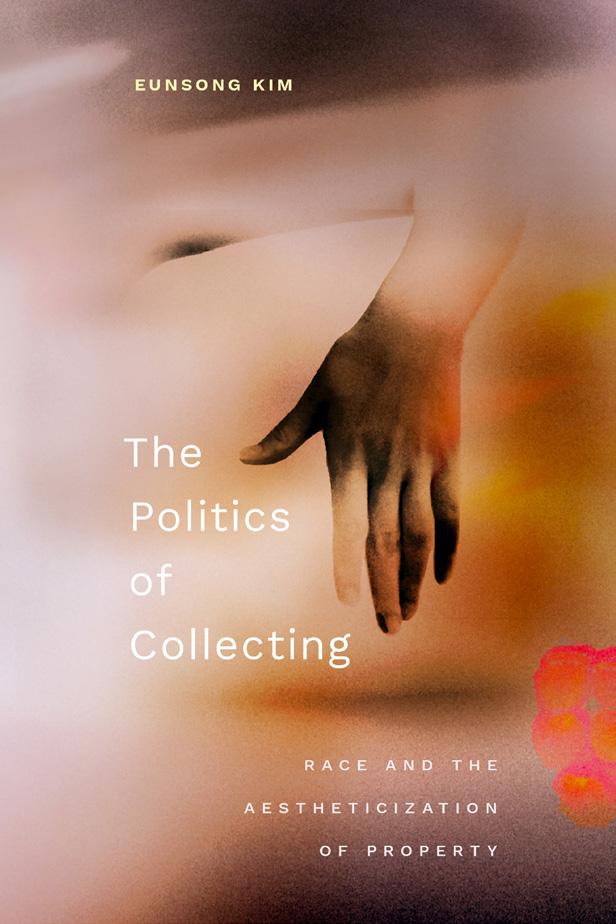
August 2024
328 pages
Cultural Studies/Museum Studies
Rights: World

February 2025
272 pages Black studies/Music Rights: World

August 2024
328 pages
Third World Studies/Ethnic studies
Rights: World
April 2025
248 pages
Science and technology studies/Media studies
Rights: World
Theorizing Liberation
Second Edition, Revised and Expanded
GARY Y. OKIHIRO
In this revised and expanded second edition of Third World Studies, Gary Y. Okihiro considers the methods and theories that might constitute the formation of Third World studies. Proposed in 1968 at San Francisco State College by the Third World Liberation Front but replaced by faculty and administrators with ethnic studies, Third World studies was over before it began. As opposed to ethnic studies, which Okihiro critiques for its liberalism and US-centrism, Third World studies begins with the colonized world and the anti-imperial, anticolonial, and antiracist projects located therein as described by W. E. B. Du Bois in 1900. Third World studies analyzes the locations and articulations of power around the axes of race, gender, sexuality, (dis)ability, class, and nation. In this new edition, Okihiro emphasizes the work of Third World intellectuals such as M. N. Roy, José Carlos Mariátegui, and Oliver Cromwell Cox; foregrounds the importance of Bandung and the Tricontinental; and adds discussions of eugenics, feminist epistemologies, and religion. With this work, Okihiro establishes Third World studies as a theoretical formation and a liberatory practice.
Gary Y. Okihiro (1945-2024) was Visiting Professor of American Studies and Ethnicity, Race, and Migration at Yale University and the author of many books, including The Boundless Sea: Self and History and American History Unbound: Asians and Pacific Islanders
Computational Experience in a Time of Machine Learning
ANNA MUNSTER
Computation has now been reconfigured by machine learning: those technical processes and operations that yoke together statistics and computer science to create artificial intelligence (AI) by furnishing vast datasets to learn tasks and predict outcomes. In DeepAesthetics, Anna Munster examines the range of more-than-human experiences this transformation has engendered and considers how those experiences can be qualitative as well as quantitative. Drawing on process philosophy, Munster approaches computational experience through its relations and operations. She combines deep learning—the subfield of machine learning that uses neural network architectures—and aesthetics to offer a way to understand the insensible and frequently imperceptible forms of nonlinear and continuously modulating statistical function. Attending to the domains and operations of image production, statistical racialization, AI conversational agents, and critical AI art, Munster analyzes how machine learning is operationally entangled with racialized, neurotypical, and cognitivist modes of producing knowledge and experience. She approaches machine learning as events through which a different sensibility registers, one in which AI is populated by oddness, disjunctions, and surprises, and where artful engagement with machine learning fosters indeterminate futures.
Anna Munster is Professor in the School of Art and Design at the University of New South Wales and author of An Aesthesia of Networks: Conjunctive Experience in Art and Technology and Materializing New Media: Embodiment in Information Aesthetics
Migrant Care Work in Palestine/Israel
RACHEL H. BROWN
In Unsettled Labors, Rachel H. Brown explores the overlooked labor of migrant workers in Israel’s eldercare industry. Brown argues that live-in eldercare in Palestine/Israel, which is primarily done by migrant workers, is an often invisible area where settler colonialism is reproduced culturally, economically, and biologically. Situating Israeli labor markets within a longer history of imperialism and dispossession of Palestinian land, Brown positions migrant eldercare within the resulting tangle of Israeli laws, policies, and social discourses. She draws from interviews with caretakers, public statements, court documents, and first-hand fieldwork to uncover the inherently contradictory nature of elder care work: the intimate presence of South and Southeast Asian workers in the home unsettles the idea of the Israeli home as an exclusively Jewish space. By paying close attention to the comparative racialization of migrant workers, Palestinians, asylum seekers, and Mizrahi and Ashkenazi settlers, Brown raises important questions of labor, social reproduction, displacement, and citizenship told through the stories of collective care provided by migrant workers in a settler colonial state.
Rachel H. Brown is Assistant Professor of Women, Gender, and Sexuality Studies at Washington University in St. Louis.
MAAN BARUA
In Plantation Worlds, Maan Barua interrogates debates on planetary transformations through the histories and ecologies of plantations. Drawing on long-term research spanning fifteen years, Barua presents a unique ethnography attentive to the lives of both people and elephants amid tea plantations in the Indian state of Assam. In the nineteenth and early twentieth centuries, nearly three million people were brought in to Assam’s plantations to work under conditions of indenture. Plantations dramatically altered the region’s landscape, plundered resources, and created fraught worlds for elephants and people. Their extractive logics and colonial legacies prevail as durations, forging the ambit of infrastructures, labor, habitability, and conservation in the present. And yet, as the perspectives of the Adivasi plantation worker community and lifeworlds of elephants show, possibilities for enacting a decolonial imaginary of landscape remain present amid immiseration. From the margins of the Global South, Barua offers an alternative grammar for articulating environmental change. In so doing, he prompts a rethinking of multispecies ecologies and how they are structured by colonialism and race.
Maan Barua is University Lecturer in Human Geography at the University of Cambridge and author of Lively Cities: Reconfiguring Urban Ecology

August 2024
328 pages
Gender Studies/Political Theory/Settler
Colonial Studies
Rights: World
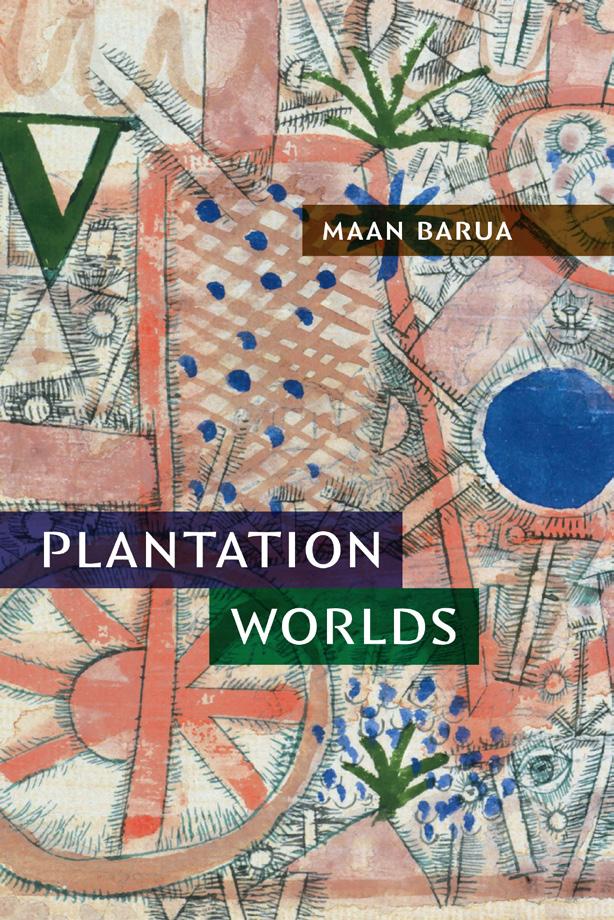
August 2024
312 pages
Anthropology/Environment/South Asia
Rights: World
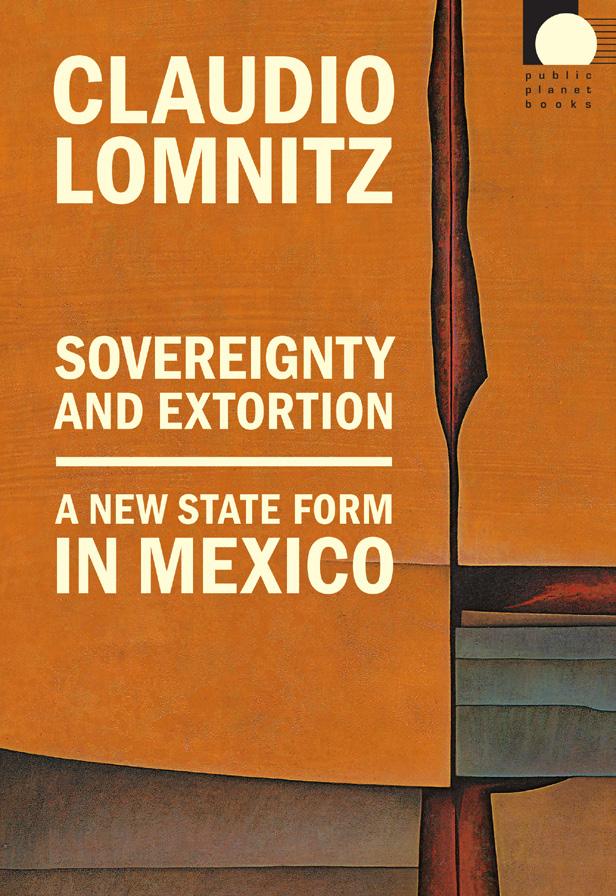
Over the past fifteen years in Mexico, more than 450,000 people have been murdered and 110,000 more have been disappeared. In Sovereignty and Extortion, Claudio Lomnitz examines the Mexican state in relation to this extreme violence, uncovering a reality that challenges the familiar narratives of “a war on drugs” or a “failed state.” Tracing how neoliberal reforms, free trade agreements, and a burgeoning drug economy have shaped Mexico’s sociopolitical landscape, Lomnitz shows that the current crisis does not represent a tear in the social fabric. Rather, it reveals a fundamental shift in the relationship between the state and the economy in which traditional systems of policing, governance, and the rule of law have eroded. Lomnitz finds that power is now concentrated in the presidency and enforced through militarization, which has left the state estranged from itself and incapable of administering justice or regaining control over violence. Through this critical examination, Lomnitz offers a new theory of the state, its forms of sovereignty, and its shifting relation to capital and militarization.
Claudio Lomnitz is Campbell Family Professor of Anthropology at Columbia University and the author of several books, including Nuestra América: My Family in the Vertigo of Translation, The Return of Comrade Ricardo Flores Magón, and Death and the Idea of Mexico

200 pages
Anthropology/Science studies/Food studies Rights: World
ANNEMARIE MOL
This series of co-authored essays written with ethnographer and philosopher Annemarie Mol, builds off of previous work focused on eating’s application in theory to think more linguistically about eating as a theme in the English language. Considering the idiosyncratic connotations of eating as an English word, the contributors to this collection push back against the universality of language. By examining non-English equivalents of the word from languages such as Dutch, Portuguese, German, and Spanish, the book’s chapters contemplate eating’s verbal and physical meanings, as well as the pleasures that accompany it. Moreover, in using eating as an example of analytical difference, the authors explore the capabilities of language within research fields and practices. Eating thus becomes a vehicle for reorienting the act of valuingtowards appreciation instead of judgment, creating a deeper form of engagement for academic conversations.
Annemarie Mol is Professor of Anthropology of the Body, University of Amsterdam.
Throughout Russian history, local craftsmen have shown remarkable skill in fashioning wood into items of daily use, from bridges and street paving to carts and boats to household utensils and combs. Russia has the largest forested zone on the planet, so its architecture was also traditionally made from timber. From homes to churches to forts, Russian buildings are almost all, underneath, constructed with logs, often covered by plank siding or by lathing and plaster. In From Forest to Steppe, renowned scholar and photographer William Craft Brumfield offers a panoramic survey of Russia’s centuries-long heritage of wooden architecture. Lavishly illustrated with nearly 400 color photographs, the volume links log-built barns, windmills, houses, and churches in the Far North; Buddhist shrines in the Transbaikal region; and eighteenth-century palaces on the outskirts of Moscow. Brumfield also takes readers to the estate houses of many of Russia’s literary giants, from Chekhov and Tolstoy to Dostoevsky and Pushkin. Spanning thousands of photographed sites, five decades of field work, and seven time zones, Brumfield’s photographs offer compelling evidence of the adaptability of log construction and its ability to transcend class, cultural, and aesthetic boundaries. In the decades since Brumfield began photographing Russian architecture, many of the buildings he has documented have been demolished, abandoned, and left to rot at alarming rates. Brumfield observes a contradiction in contemporary Russia: it acknowledges the cultural importance of wooden buildings yet struggles to find and dedicate the resources and solutions needed to save them. A hymn and elegy to the long Russian practice of building with wood, From Forest to Steppe is an unparalleled look into one of the world’s most singular architectural traditions.
William Craft Brumfield is Professor of Slavic Studies at Tulane University. Brumfield, who began photographing Russia in 1970, is the foremost authority in the West on Russian architecture. He is the author, editor, and photographer of numerous books, including Journeys through the Russian Empire: The Photographic Legacy of Sergey Prokudin-Gorsky, Architecture at the End of the Earth: Photographing the Russian North, and Lost Russia: Photographing the Ruins of Russian Architecture, all also published by Duke University Press. Brumfield is the recipient of a John Simon Guggenheim Memorial Fellowship and was a Fellow at the National Humanities Center. In 2002 he was elected to the State Russian Academy of Architecture and Construction Sciences, and in 2006 he was elected to the Russian Academy of Fine Arts. He is also the 2014 recipient of the D. S. Likhachev Prize for Outstanding Contributions to the Preservation of the Cultural Heritage of Russia. In 2019 he was awarded the Russian state Order of Friendship medal—the highest decoration of the Russian Federation given to foreign nationals—for his study and promotion of Russia’s cultural legacy. Brumfield’s photographs of Russian architecture have been exhibited at numerous galleries and museums and are part of the Image Collections at the National Gallery of Art in Washington, DC.
June 2025
504 pages
Rights: World

ORRIN H. PILKEY, CHARLES O. PILKEY, LINDA P. PILKEY-JARVIS, NORMA J. LONGO, KEITH C.
PILKEY, FRED B. DODSON, AND HANNAH L. HAYES
Industrial and agricultural greenhouse gas emissions are rapidly warming Earth’s climate, unleashing rising seas, ocean acidification, melting permafrost, powerful storms, wildfires, floods, deadly heat waves, droughts, tsunamis, food shortages, and armed conflict over shrinking water supplies while reducing nutritional levels in crops. Billions of people will become climate refugees. Hotter temperatures will allow tropical diseases to spread into temperate regions. Higher levels of CO2, allergens, dust, and other particulate matter will impair our physical and mental health and even reduce our cognitive abilities. Climate change disproportionately affects the world’s poor. It also harms Nature, and could ultimately trigger a sixth mass extinction. In Escaping Nature, Orrin H. Pilkey and his coauthors offer concrete suggestions for how to respond to the threats posed by global climate change. They argue that while we wait for the world’s governments to get serious about mitigating climate change we can adapt to a hotter world through technological innovations, behavioral changes, naturebased solutions, political changes, and education.
Orrin H. Pilkey is Emeritus James B. Duke Professor of Earth and Ocean Sciences at Duke University and the author and coauthor of many books. Charles O. Pilkey is a former geologist turned freelance sculptor, writer, and illustrator. Linda P. Pilkey-Jarvis is a geologist and coauthor with Orrin H. Pilkey of two books. Norma J. Longo, a geologist and photographer, is coauthor with Pilkey of several books on coastal issues. Keith C. Pilkey, an attorney concerned with legal issues of coastal development, is coauthor with Orrin H. Pilkey of two books about sea level rise. Fred B. Dodson is a real estate developer who manages his organization’s affordable housing development activities. Hannah L. Hayes is a scholar of climate justice, sustainable development, and disaster capitalism.

DARREN MUELLER
In At the Vanguard of Vinyl, Darren Mueller examines how the advent of the long-playing record (LP) in 1948 revolutionized the recording and production of jazz in the 1950s. The LP’s increased fidelity and playback capacity allowed lengthy compositions and extended improvisations to fit onto a single record, ushering in a period of artistic exploration. Despite these innovations, LP production became another site of negotiating the uneven power relations of a heavily segregated music industry. Exploring how musicians, producers, and other industry professionals navigated these dynamics, Mueller contends that the practice of making LPs significantly changed how jazz was created, heard, and understood in the 1950s and beyond. By attending to the details of audio production, he reveals how Black musicians such as Louis Armstrong, Miles Davis, Duke Ellington, and Charles Mingus worked to redefine prevailing notions of race and cultural difference within the United States. Mueller demonstrates that the LP emerges as a medium of sound and culture that maps onto the more expansive sonic terrain of Black modernity in the 1950s.
Darren Mueller is Assistant Professor of Musicology at the Eastman School of Music, University of Rochester, and coeditor of Digital Sound Studies, also published by Duke University Press.
How the Cassette Made Music Shareable
ROB DREW
Well into the new millennium, the analog cassette tape continues to claw its way back from obsolescence. New cassette labels emerge from hipster enclaves while the cassette’s likeness pops up on T-shirts, coffee mugs, belt buckles, and cell phone cases. In Unspooled, Rob Drew traces how a lowly, hissy format that began life in office dictation machines and cheap portable players came to be regarded as a token of intimate expression through music and a source of cultural capital. Drawing on sources ranging from obscure music zines to transcripts of Congressional hearings, Drew examines a moment in the early 1980s when music industry representatives argued that the cassette encouraged piracy. At the same time, 1980s indie rock culture used the cassette as a symbol to define itself as an outsider community. Indie’s love affair with the cassette culminated in the mixtape, which advanced indie’s image as a gift economy. By telling the cassette’s long and winding history, Drew demonstrates that sharing cassettes became an acceptable and meaningful mode of communication that initiated rituals of independent music recording, re-recording, and gifting.
Rob Drew is Professor of Communication at Saginaw Valley State University and author of Karaoke Nights: An Ethnographic Rhapsody
Black Women, Voice, and the Musical Stage
MASI ASARE
In Blues Mamas and Broadway Belters, songwriter, scholar, and dramatist Masi Asare explores the singing practice of black women singers in US musical theatre between 1900 and 1970. Asare shows how a vanguard of black women singers including Gertrude “Ma” Rainey, Bessie Smith, Ethel Waters, Pearl Bailey, Juanita Hall, Lena Horne, Eartha Kitt, Diahann Carroll, and Leslie Uggams created a lineage of highly trained and effective voice teachers whose sound and vocal techniques continue to be heard today. Challenging pervasive narratives that these and other black women possessed “untrained” voices, Asare theorizes singing as a form of sonic citational practice—how the sound of the teacher’s voice lives on in the student’s singing. From vaudeville-blues shouters, black torch singers, and character actresses to nightclub vocalists and Broadway glamour girls, Asare locates black women of the musical stage in the context of historical voice pedagogy. She invites readers not only to study these singers, but to study with them—taking seriously what they and their contemporaries have taught about the voice. Ultimately, Asare speaks to the need to feel and hear the racial history in contemporary musical theatre.
Masi Asare is Assistant Professor of Theatre at Northwestern University and a Tony Award–nominated Broadway songwriter and dramatist.


October 2024
304 pages
Music/African American studies/Theater and Performance
Rights: World
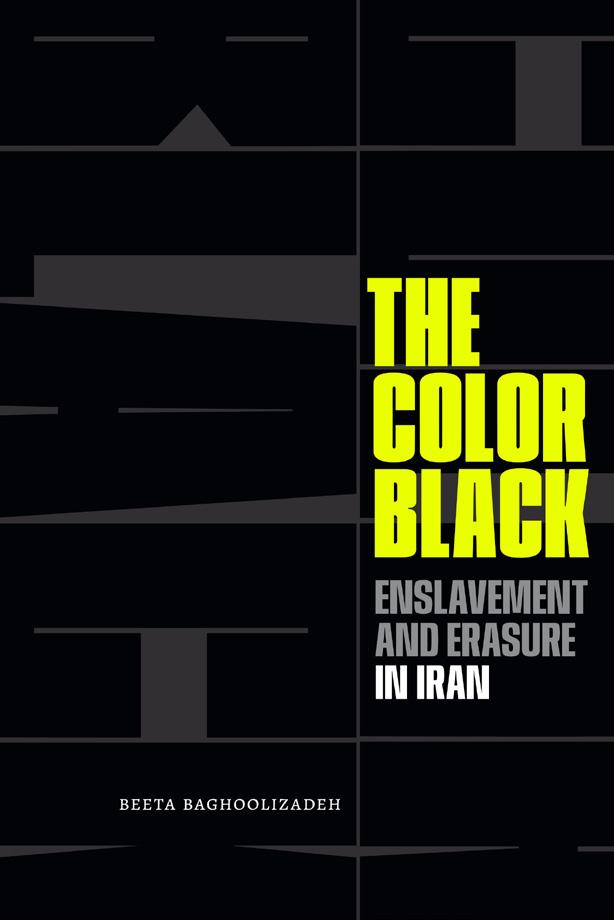
BEETA BAGHOOLIZADEH
In The Color Black, Beeta Baghoolizadeh traces the twin processes of enslavement and erasure of Black people in Iran during the nineteenth and twentieth centuries. She illustrates how geopolitical changes and technological advancements in the nineteenth century made enslaved East Africans uniquely visible in their servitude in wealthy and elite Iranian households. During this time, Blackness, Africanness, and enslavement became intertwined—and interchangeable—in Iranian imaginations. After the end of slavery in 1929, the implementation of abolition involved an active process of erasure on a national scale, such that a collective amnesia regarding slavery and racism persists today. The erasure of enslavement resulted in the erasure of Black Iranians as well. Baghoolizadeh draws on photographs, architecture, theater, circus acts, newspapers, films, and more to document how the politics of visibility framed discussions around enslavement and abolition during the nineteenth and twentieth centuries. In this way, Baghoolizadeh makes visible the people and histories that were erased from Iran and its diaspora.
Beeta Baghoolizadeh is Associate Research Scholar in the Sharmin and Bijan Mossavar-Rahmani Center for Iran and Persian Gulf Studies at Princeton University.

March 2024
312 pages
Latin American History Rights: World
An Interior History of Modern Brazil
JACOB BLANC
In The Prestes Column, Jacob Blanc offers a new interpretation of the legendary rebellion, in which a band of rebel officers and soldiers marched fifteen thousand miles through the vast interior regions of Brazil between 1924 and 1927. Blanc’s analysis of the Prestes Column is a showcase of what he calls “interior history.” At a pivotal moment in national politics, the long march of the column came to embody the constructed duality of Brazil’s interior: a space that was seen by coastal elites as simultaneously backward—in relation to the more modern coast—and dormant, an expanse of untapped potential waiting to be brought into the nation. Drawing on a range of materials, from officers’ memoirs and local eyewitness accounts to physical memorials and government archives, Blanc’s framework of interior history helps explain the column’s initial rise to fame and also its enduring legacy across the twentieth century, offering a new approach for the study of space and nation.
Jacob Blanc is an Associate Professor of History and International Development Studies at McGill University, author of Before the Flood: The Itaipu Dam and the Visibility of Rural Brazil, also published by Duke University Press, and coeditor of Big Water: The Making of the Borderlands between Brazil, Argentina, and Paraguay
LAURA U. MARKS
In The Fold, Laura U. Marks offers a practical philosophy and aesthetic theory for living in an infinitely connected cosmos. Drawing on the theories of Leibniz, Glissant, Deleuze, and theoretical physicist David Bohm—who each conceive of the universe as being folded in on itself in myriad ways—Marks contends that the folds of the cosmos are entirely constituted of living beings. From humans to sandwiches to software to stars, every entity is alive and occupies its own private enclosure inside the cosmos. Through analyses of fiction, documentary and experimental movies, interactive media, and everyday situations, Marks outlines embodied methods for detecting and augmenting the connections between each living entity and the cosmos. She shows that by affectively mediating with the ever-shifting folded relations within the cosmos, it is possible to build “soul-assemblages” that challenge information capitalism, colonialism, and other power structures and develop new connections with the infinite. With this guide for living within the enfolded and unfolding cosmos, Marks teaches readers to richly apprehend the world and to trace the processes of becoming that are immanent within the fold.
Laura U. Marks is Grant Strate University Professor at Simon Fraser University and author of The Skin of the Film: Intercultural Cinema, Embodiment, and the Senses, also published by Duke University Press, and Hanan al-Cinema: Affections for the Moving Image, among other books.
An Elemental History of Photography
SIOBHAN ANGUS
In Camera Geologica Siobhan Angus tells the history of photography through the minerals upon which the medium depends. Challenging the emphasis on immateriality in discourses on photography, Angus focuses on the inextricable links between image-making and resource extraction, revealing how the mining of bitumen, silver, platinum, iron, uranium, and rare earth elements is a precondition of photography. Photography, Angus contends, begins underground and, in photographs of mines and mining, frequently returns there. Through a materials-driven analysis of visual culture, she illustrates histories of colonization, labor, and environmental degradation to expose the ways in which photography is enmeshed within and enables global extractive capitalism. Angus places nineteenth-century photography in dialogue with digital photography and its own entangled economies of extraction, demonstrating the importance of understanding photography’s complicity in the economic, geopolitical, and social systems that order the world.
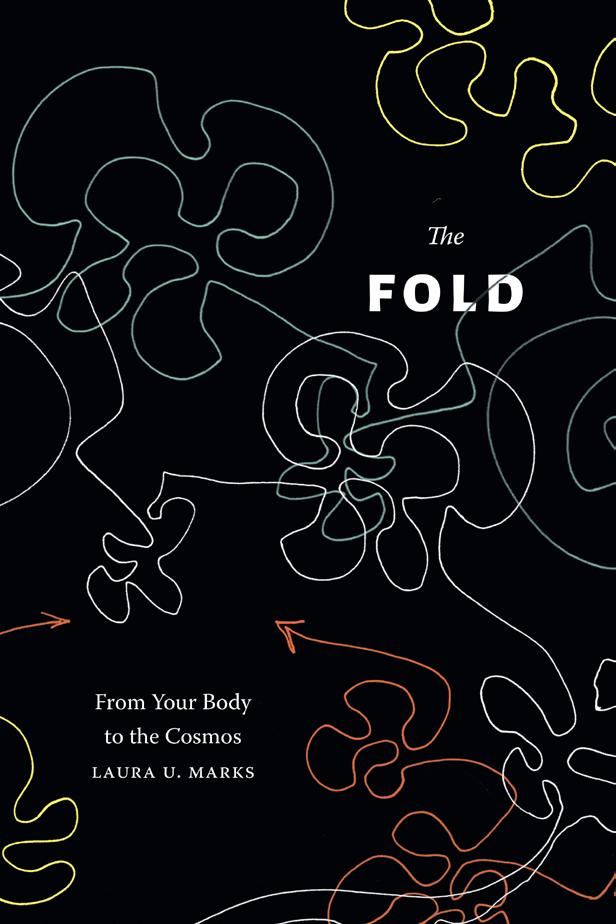
April 2024
344 pages
Theory and Philosophy / Media Studies / Art and Visual Culture
Rights: World
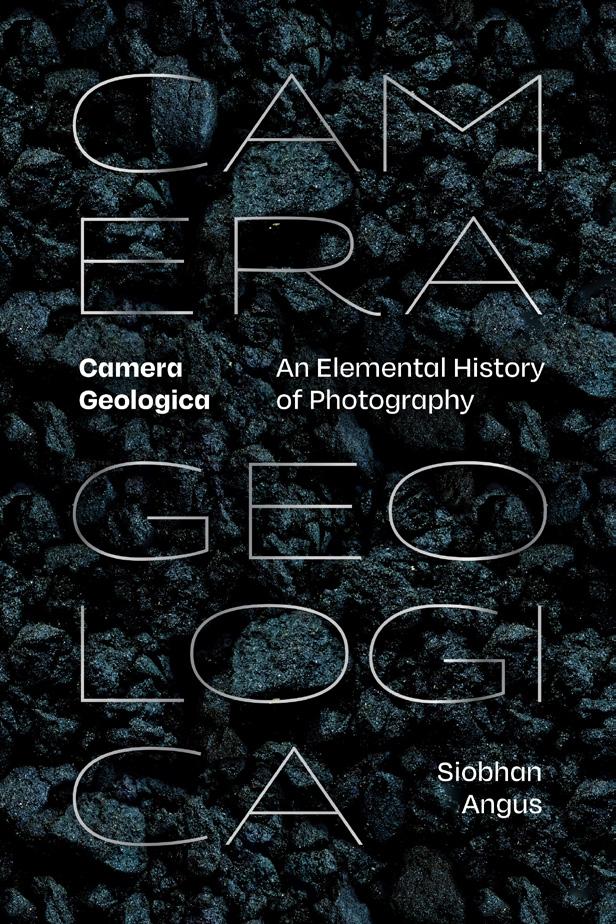
Siobhan Angus is Assistant Professor of Communication and Media Studies at Carleton University. March 2024
328 pages
Science and Technology Studies / Art and Visual Culture
Rights: World

TANJA PETROVI c
The compulsory service for young men in the Yugoslav People’s Army (JNA) created bonds across ethnic, religious, and social lines. These bonds persisted even after the horrific violence of the 1990s, in which many of these men found themselves on opposite sides of the front lines. In Utopia of the Uniform, Tanja Petrović draws on memories and material effects of dozens of JNA conscripts to show how their experience of military service points to futures, forms of collectivity, and relations between the state and the individual different from those that prevailed in the post-Yugoslav reality. Petrović argues that the power of repetitive, ritualized, and performative practices that constituted military service in the JNA provided a framework for drastically different men to live together and befriend each other. While Petrović and her interlocutors do not idealize the JNA, they acknowledge its capacity to create interpersonal relationships and affective bonds that brought the key political ideas of collectivity, solidarity, egalitarianism, education, and comradeship into being.
Tanja Petrović is Head of the Institute of Culture and Memory Studies at the Research Center of the Slovenian Academy of Sciences and Arts. She is the author of numerous books, including A Long Way Home: Representations of the Western Balkans in Political and Media Discourses
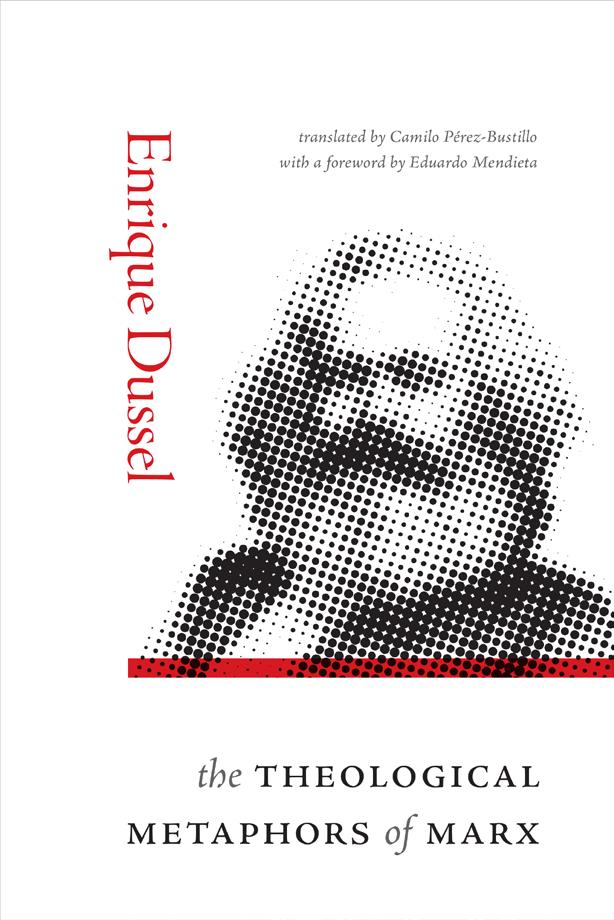
April 2024
288 pages
Theology / Marxism / Philosophy
Rights: World
TRANSLATED BY CAMILO PÉREZ-BUSTILLO WITH A FOREWORD BY EDUARDO MENDIETA
In The Theological Metaphors of Marx, Enrique Dussel provides a groundbreaking combination of Marxology, theology, and ethical theory. Dussel shows that Marx unveils the theology of capitalism in his critique of commodity fetishization. Capitalism constitutes an idolatry of the commodity that undergirds the capitalist expropriation of labor. Dussel examines Marx’s early writings on religion and fetishism and proceeds through what Dussel refers to as the four major drafts of Capital, ultimately situating Marx’s philosophical, economic, ethical, and historical insights in relation to the theological problems of his time. Dussel notes a shift in Marx’s underlying theological schema from a political critique of the state to an economic critique of the commodity fetish as the Devil, or anti-God, of modernity. Marx’s thought, impact, and influence cannot be fully understood without Dussel’s historic reinterpretation of the theological origins and implications of Marx’s critiques of political economy and politics.
Enrique Dussel (1934–2023) was Emeritus Professor, Universidad Autonoma Metropolitana-Iztapalapa, and the author of many books, including Twenty Theses on Politics and Ethics of Liberation: In the Age of Globalization and Exclusion, both also published by Duke University Press. Camilo Pérez-Bustillo is coauthor of Human Rights, Hegemony, and Utopia in Latin America Eduardo Mendieta is Professor of Philosophy and Latina/o Studies at Pennsylvania State University.
SHARAD CHARI
In Apartheid Remains, Sharad Chari explores how people handle the remains of segregation and apartheid in South Africa as witnessed through portals in an industrial-residential landscape in the Indian Ocean city of Durban. Through long-term historical and ethnographic research, Chari portrays South Africa’s twentieth century as a palimpsest that conserves the remains of multiple pasts, including attempts by the racial state to remake territory and personhood while instead deepening spatial contradictions and struggles. When South Durban’s denizens collectively mobilized in various ways---through Black Consciousness politics and other attempts at refusing the ruinous articulation of biopolitics, sovereignty, and capital---submerged traditions of the Indian Ocean and the Black Atlantic offered them powerful resources. Of these, Chari reads Black documentary photography as particularly insightful audiovisual blues critique. At the tense interface of Marxism, feminism, and Black study, he offers a method and form of geography attentive to the spatial and embodied remains of history. Apartheid Remains looks out from South Durban to imaginations of abolition of all forms of racial capitalism and environmental suffering that define our planetary predicament.
Sharad Chari is Associate Professor of Geography and Critical Theory at the University of California, Berkeley; Research Associate at the Wits Institute for Social and Economic Research (WiSER); and author of Gramsci at Sea and Fraternal Capital: Peasant-Workers, Self-Made Men, and Globalization in Provincial India
*Licensed in Russia to Azbooka and in South Africa to University of KwaZulu-Natal Press
Art and Decoloniality in Central America
KENCY CORNEJO
In Visual Disobedience, Kency Cornejo traces the emergence of new artistic strategies for Indigenous, feminist, and anticarceral resistance in the wake of torture, disappearance, killings, and US-funded civil wars in Central America. Cornejo reveals a direct line from US intervention to current forms of racial, economic, and gender injustice in the isthmus, connecting this to the criminalization and incarceration of migrants at the US-Mexico border today. Drawing on interviews with Central American artists and curators, she theorizes a form of “visual disobedience” in which art operates in opposition to nation-states, colonialism, and visual coloniality. She counters historical erasure by examining over eighty artworks and highlighting forty artists across the region. Cornejo also rejects the normalized image of the suffering Central American individual by repositioning artists as creative agents of their own realities. With this comprehensive exploration of contemporary Central American art, Cornejo highlights the role of visual disobedience as a strategy of decolonial aesthetics to expose and combat coloniality, heteropatriarchy, white supremacy, empire, and other systems of oppression.
Kency Cornejo is Associate Professor of Art History at the University of New Mexico.

May 2023
496 pages
African studies/Marxist theory/Black studies
Rights: World*
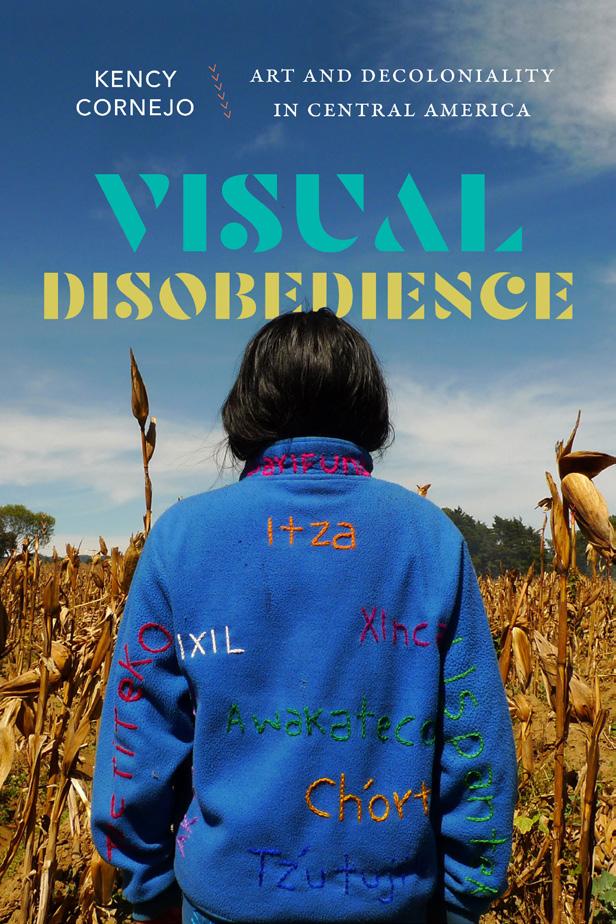
October 2024
304 pages
Contemporary art/Latin American studies
Rights: World
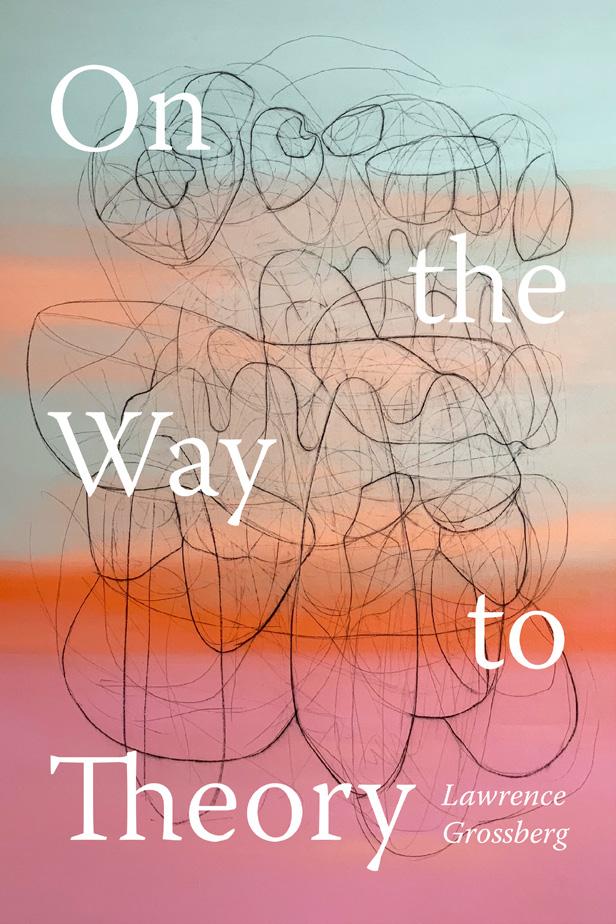
October 2024
496 pages
Theory/Cultural studies/Philosophy Rights: World

October 2024
312 pages
Feminist theory/Cultural studies Rights: World
LAWRENCE GROSSBERG
In On the Way to Theory, Lawrence Grossberg introduces the major ways of thinking that provide the backstory for contemporary Western theory. Asking readers to think about thinking, Grossberg traces cultural and critical theory’s foundations from the contested enlightenments to modern and postmodern conceptualizations of power, experience, language, and existence. He introduces key figures as historical characters and lays out the unique set of tools for thought that their “deep theories” offer. Through finely tuned and accessible descriptions of their concepts and logics, Grossberg highlights thinkers including Spinoza, Kant, Hegel, Marx, Nietzsche, Wittgenstein, Heidegger, Derrida, Foucault, Deleuze, and Hall, defining the possibilities of their thought. This book is essential for those interested in how theories shape our understanding of the world, influence our choices, and define our realities. It challenges us to recognize the multiplicity and complexities of ways of thinking in our quest for knowledge and understanding. By setting out a story of theoretical foundations, Grossberg invites readers to think toward the future of theory and expand conversations around theoretical scrutiny and criticism.
Lawrence Grossberg is Distinguished Professor Emeritus of Communication at the University of North Carolina at Chapel Hill and the author and editor of numerous books, including Cultural Studies 1983, Cultural Studies in the Future Tense, Bringing It All Back Home, and Dancing in Spite of Myself, all also published by Duke University Press.
MIMI THI NGUYEN
Mimi Thi Nguyen examines how the perceived presence and absence of beautystructures cultural and historical inquiry. Drawing on a background in feminist and Asian American studies, Nguyen approaches beauty as a method that attends to questions of aesthetics and politics from within a multisensory world history. Comprehending beauty in this way, Nguyen analyzes affective and aesthetic responses to scarcity, precarity, and uncertainty through the crises of war and colonial and capital dispossession. Utilizing historical and philosophical thinkers from Plato and Adorno to Elaine Scarry and Saidiya Hartman, Nguyen describes how beauty operates as a reference for the human, collectivity, politics, ethics, and other forms of life. In doing so, she seeks to understand the promise of beauty and how it functions as a world-building engagement.
Mimi Thi Nguyen is Associate Professor and Chair of Gender and Women's Studies, University of Illinois, Urbana-Champaign.
MILLER OBERMAN
This is a collection of poetry that offers an intimate and personal account of fatherhood, loss, grief, and family. The collection stages an impossible encounter between Oberman and his late father, who spent his last years completing a manuscript on the loss of his first son, Joshua. In staging this encounter, Oberman provides excerpts from his father’s manuscript –streamlined and trimmed – alongside his own poetry, allowing for the emergence and study of difficult affects such as anxiety, anger, desire, and loss. Above all, the collection sits with and interrogates the capaciousness of “trans”-ness. Oberman traces the ways that transgenerational trauma, transmitted memory, and trans identity all operate together experientially and within the nexus of Oberman’s family.
Miller Oberman is the author of The Unstill Ones (Princeton University Press, 2017). He lives with his family in Queens, New York.

October 2024
120 pages
Poetry
Rights: World
Diaspora, Inheritance, and the Afterlives of Zumbi
MARC A HERTZMAN
Marc Hertzman tells the story of what was likely the world's largest fugitive-slave settlement, Palmares. Located in the dense forests and rough terrain of northeast Brazil, for most of the seventeenth century, Palmares was home to thousands of Africans and their kin, who escaped slavery and forged homes in the wilderness. While most scholarship on Palmares ends in 1695, with the killing of its most famous leader, Zumbi, who was assassinated by Portuguese forces, this book highlights the aftermaths of 1695, narrating the history of Palmares from a novel perspective. By treating 1695 as a starting point, the book challenges our knowledge about Palmares and proposes new directions in the study of the African diaspora by examining the unique spiritual beliefs and ways of living practiced there.
Marc Hertzman is Associate Professor of History, University of Illinois

September 2024
480 pages
Latin American History/African diaspora/ Slavery Rights: World
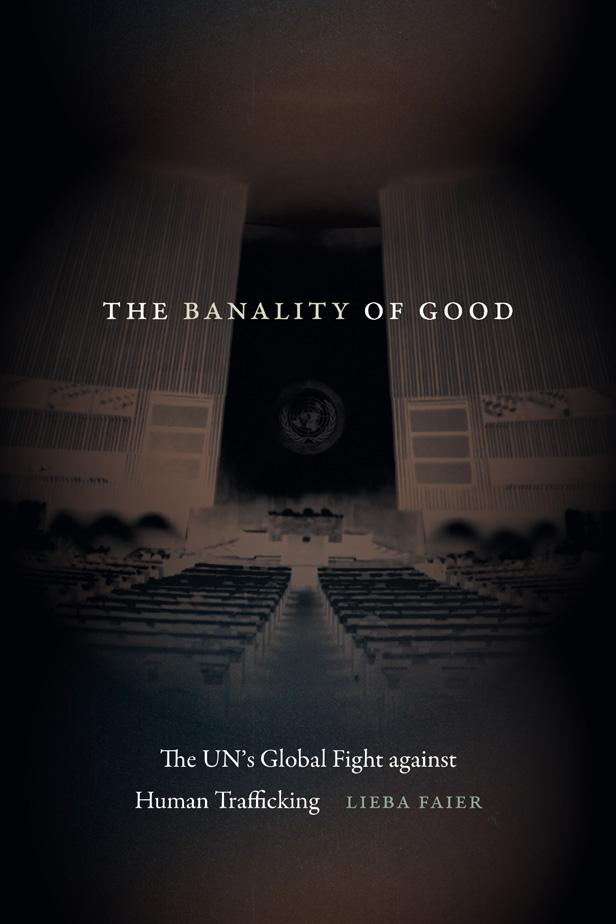
The UN’s Global Fight against Human Trafficking LIEBA FAIER
Examining Japan’s counter-human trafficking program, known as the Action Plan, Faier uses Japan as a case study through which she argues against globalization in response to local issues, stating that programs like the Trafficking Protocol erase the history, political and economic inequality, and cultural differences of the very people they are designed to aid. Borrowing from Hannah Arendt’s idea of the “banality of evil” as drawn from the trial of leading Nazi Adolf Eichmann, Faier coins the “banality of good,” using the phrase to refer to reality of Japan and the UN’s response to human trafficking that privileges bureaucracy and compliance over the needs of victims, often resulting in a lower quality of life, repatriation, and even criminalization of human trafficking survivors.
Lieba Faier is Associate Professor of Geography, University of California, September 2024 336 pages Anthropology/ Gender Studies/ Asian Studies
World

August 2024
232 pages
South Asian studies/Colonial and Postcolonial studies/Marxist theory Rights: World
A Social History of Fear in Colonial Bengal
TITHI
BHATTACHARYA
In Ghostly Past, Capitalist Presence, Tithi Bhattacharya maps the role that Bengali ghosts and ghost stories played in constituting the modern Indian nation, and the religious ideas seeded therein, as it emerged in dialogue with European science. Bhattacharya introduces readers to the multifarious habits and personalities of Bengal’s traditional ghosts and investigates and mourns their eventual extermination. For Bhattacharya, British colonization marked a transition from the older, multifaith folk world of traditional ghosts to newer and more frightening specters. These "modern" Bengali ghosts, borne out of a new rationality, were homogeneous specters amenable to "scientific" speculation and invoked at séance sessions in elite drawing rooms. Reading literature alongside the colonial archive, Bhattacharya uncovers a new reordering of science and faith from the middle of the nineteenth century. She argues that these shifts cemented the authority of a rising upper-caste colonial elite who expelled the older ghosts in order to recast Hinduism as the conscience of the Indian nation. In so doing, Bhattacharya reveals how capitalism necessarily reshaped Bengal as part of the global colonial project.
Tithi Bhattacharya is Associate Professor of History at Purdue University, author of The Sentinels of Culture: Class, Education, and the Colonial Intellectual in Bengal, 1848–1885, and coauthor of Feminism for the 99%: A Manifesto
Policing a Postcolonial City
JOSHUA BARKER
In State of Fear, Joshua Barker reckons with how fear and violence are produced and reproduced through everyday practices of rule and control. Examining the ethnographic and historical genealogies of Indonesian policing, Barker focuses on the city of Bandung, which is permeated by anxieties about security, in spite of the fact that it’s a relatively safe city according to the data. Drawing from his fieldwork there during the latter years of the authoritarian New Order regime, Barker traces the complex relationship between the state and vigilante groups like neighborhood watch patrols and street gangs. Through interviews with police officers, vigilantes, and street-level toughs, he uncovers a struggle between two visions of social control that continues to animate policing in Indonesia: the modern, bureaucratic approach favored by the state, and a territorial approach that divides the city into fiefdoms overseen by charismatic individuals of authority. Synthesizing insights from in-depth ethnographic, historical, and theoretical work, Barker reveals how authoritarianism can take root not just from the top down but also from the bottom up.
Joshua Barker is Professor of Anthropology at the University of Toronto and coeditor of Figures of Southeast Asian Modernity and State of Authority: State in Society in Indonesia
The Story of a Woman Who Decided to be a Puta GABRIELA LEITE
TRANSLATED BY MEG WEEKS
In the early 1970s, while living at home with her conservative middle-class family and studying at the University of São Paulo, Gabriela Leite decided to become a sex worker. From her first client in a tiny room in downtown São Paulo to the launch of an exuberant clothing line designed for sex workers in Rio de Janeiro thirty years later, Daughter, Mother, Grandmother, and Whore tells the fascinating story of Leite’s bold and unique life in her own words. After helping to organize Brazil’s first protests by sex workers against police brutality, she moved to Rio de Janeiro, where she quickly became ensconced in the city’s storied red-light district. From there, Leite built a national network of politicized sex workers, worked for HIV/AIDS prevention, and participated in Brazil’s robust new civil society after its return to democracy in 1985 following a twenty-one-year military dictatorship. Insistent on advocating for the sex worker’s comprehensive human rights, Leite pioneered an irreverent grassroots Latin American feminism, which critiqued moral hypocrisies and Christian conservatism while affirming pleasure, joy, and agency. Daughter, Mother, Grandmother, and Whore also includes a foreword by artist and activist Carol Leigh.
Gabriela Leite (1951–2013) was a sex worker, activist, and organizer and the founder of Brazil’s sex worker's movement. Meg Weeks is Assistant Professor at the Center for Latin American Studies at the University of Florida.

September 2024
328 pages
Anthropology/Asian studies
Rights: World
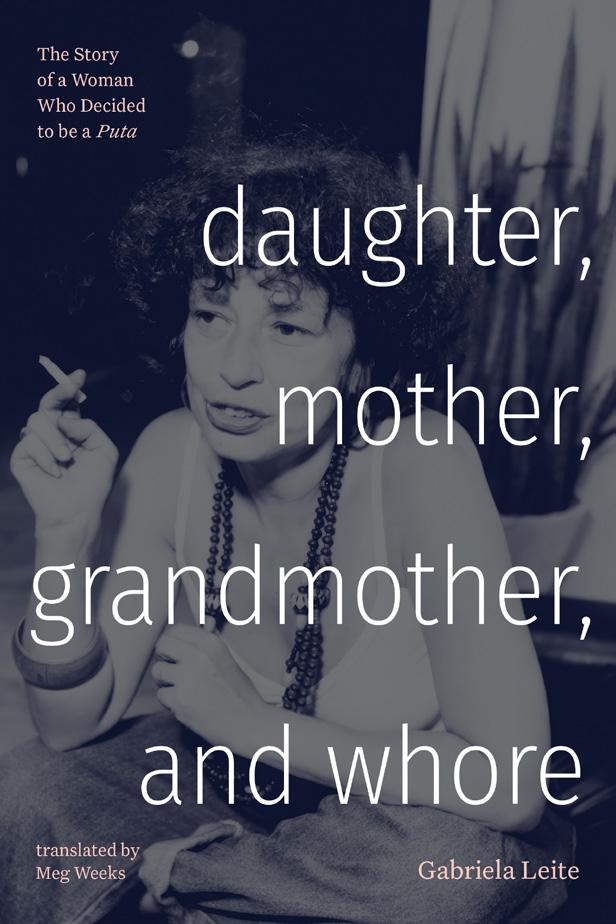
September 2024
200 pages
Memoir/Sexuality/Latin America Rights: World

In 1991, sixteen-year-old activist Keiko Lane joined the Los Angeles chapters of Queer Nation and ACT UP. Their members protested legislation aimed at dismantling rights for LGBTQ people, people living with HIV, and immigrants while fighting for needle-exchange programs, reproductive justice, safer-sex education, hospice funding, and the right to die with dignity. At the same time, the activists were a queer chosen family of friends and lovers who took care of one another in sickness and in health. Sometimes they helped each other die. By the time Lane turned twenty-two, most had died of AIDS. In her evocative memoir, Lane weaves together love stories and afterlives of queer resistance and survival against the landscape of the Rodney King Rebellion, the movement for queer rights, and the censorship of queer artists and sexualities. Lane interrogates the social construction of power against and in queer communities of color and the recovery of sexual agency in the midst and aftermath of violence. Luminous and powerfully moving, Blood Loss explores survival after those we love have died.
Keiko Lane is an independent scholar and practicing psychotherapist.
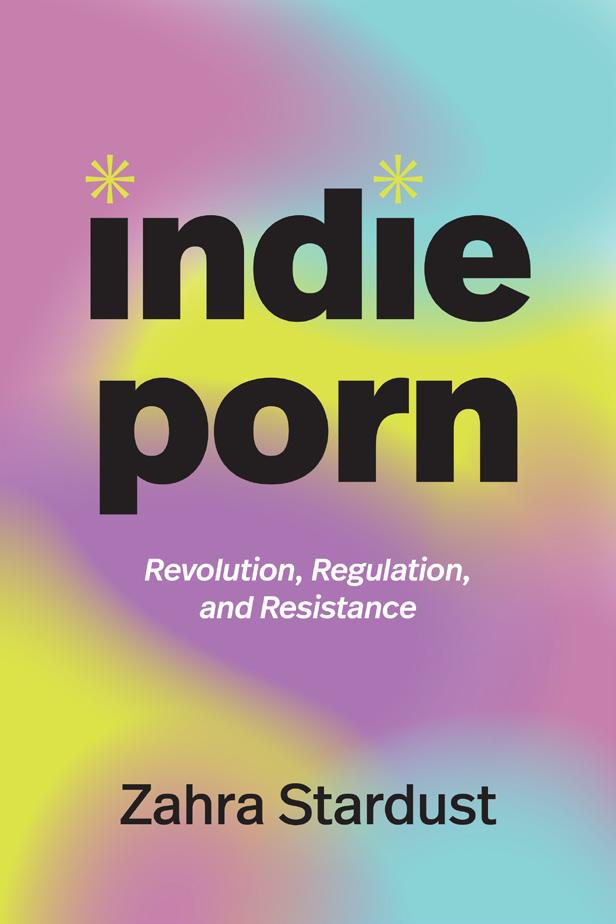
October 2024
328 pages
Gender and sexuality/Media studies/Critical Legal Theory
Rights: World
Revolution, Regulation, and Resistance
ZAHRA STARDUST
In Indie Porn, Zahra Stardust examines the motivations and interventions of independent porn producers as they navigate criminal laws, risk-averse platforms, discriminatory algorithms, and rampant piracy. Herself a porn performer and participant, Stardust takes readers behind the scenes, offering intimate insights into this sociopolitical movement. She finds politicians who watch porn in parliament, protesters leading face-sitting demonstrations, sex workers making COVID-safe pornography, and artists reverse-engineering porn detection software. Against the backdrop of a global gig economy, Stardust documents the promises of indie porn to democratize content, revolutionize production, and redistribute wealth while outlining the fantasies of regulators, whose illusions of what porn is and does foreclose possibilities for transformation. Inevitably, as these paradigms collide, porn producers engage in creative tactics to hustle for survival and visibility, from ethical certification to law reform, sometimes reproducing hierarchies of stigma themselves. By highlighting how porn stigma is bound up with intersecting oppressions, Stardust identifies these junctions as coalitional opportunities for changing social relationships to sex, work, and capitalism.
Zahra Stardust is a Postdoctoral Research Fellow in the Digital Media Research Centre, Queensland University of Technology.
Puerto Rican Women Organizing for Social Justice
EMMA AMADOR
In The Politics of Care Work, Emma Amador tells the story of Puerto Rican women’s involvement in political activism for social and economic justice in Puerto Rico and the United States throughout the twentieth century. Amador focuses on the experiences and contributions of Puerto Rican social workers, care workers, and caregivers who fought for the compensation of reproductive labor in society and the establishment of social welfare programs. These activists believed conflicts over social reproduction and care work were themselves high-stakes class struggles for women, migrants, and people of color. In Puerto Rico, they organized for women’s rights, socialism, labor standards, and Puerto Rican independence. They continued this work in the United States by advocating for migrant rights, participating in the Civil Rights movement, and joining Puerto Rican-led social movements. Amador shows how their relentless efforts gradually shifted the field of social work toward social justice and community-centered activism. Their profound and enduring impact on Puerto Rican communities underscores the crucial role of Puerto Rican women’s caregiving labor and activism in building and sustaining migrant communities.
Emma Amador is Assistant Professor of History at the University of Connecticut.
Anti-imperialist Struggles in the Heart of Japan's Empire
A Study of the Weatherhead East Asian Institute
WENDY MATSUMURA
In Waiting for the Cool Moon Wendy Matsumura interrogates the erasure of colonial violence at the heart of Japanese nation-state formation. She critiques Japan studies’ role in this effacement and contends that the field must engage with anti-Blackness and anti-Indigeneity as the grounds on which to understand imperialism, colonialism, fascism, and other forces that shape national consciousness. Drawing on Black radical thinkers’ critique of the erasure of the Middle Passage in universalizing theories of modernity’s imbrication with fascism, Matsumura traces the consequences of the Japanese empire’s categorization of people as human and less-than-human as manifested in the 1920s and 1930s, and the struggles of racialized and colonized people against imperialist violence. She treats the archives safeguarded by racialized, colonized women throughout the empire as traces of these struggles, including the work they performed to keep certain stories out of view. Matsumura demonstrates that tracing colonial sensibility and struggle is central to grappling with their enduring consequences for the present.
Wendy Matsumura is Associate Professor of History at the University of California, San Diego, and author of The Limits of Okinawa: Japanese Capitalism, Living Labor, and Theorizations of Community, also published by Duke University Press.
* Licensed in Russian to Azbooka
May 2025
320 pages
US History/Gender and Women's studies
Rights: World
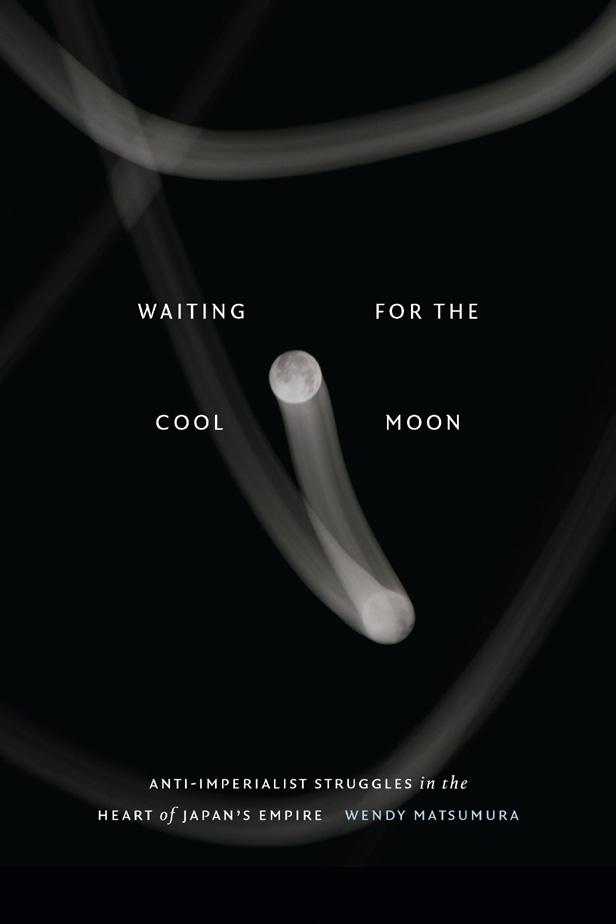
January 2024
288 pages
Postcolonial and Colonial Studies / Theory and Philosophy / Asian Studies Rights: World*
April 2025
280 pages
History of Science / Colonial Studies
Rights: World
June 2025
352 pages
Anthropology/ South Asian studies/ African studies
Rights: World
KATHLEEN CRUZ GUTIERREZ
In Anglo-European botany, it is customary to think of the vernacular as that which is not the Latin or Latinized scientific plant name. In Unmaking Botany, Kathleen Cruz Gutierrez traces a history of botany in the colonial Philippines during the last decades of Spanish rule and the first decades of US colonization. Gutierrez reimagines the vernacular, expanding it beyond non-Latin plant names to include embodied, cosmological, artistic, and varied taxonomic practices of Filipino cultural practices and traditions—from the culinary texture of rice or lyrics crooned to honor a flower or the touch of a skirt woven from banana fiber. She illuminates how Filipino vernacular botany exposes the philosophical and practical limits of its Western counterpart in its rejection of the Linnaean system. In this way, vernacular botany becomes a sovereign form of knowledge production. Revealing how Filipino botany persisted both linguistically and otherwise allows Gutierrez to theorize “sovereign vernaculars,” which serves as a methodological provocation to examine the interplay of different knowledge systems and to study the history of science from multiple vantage points.
Kathleen Cruz Gutierrez is Assistant Professor of History at the University of California, Santa Cruz
Afro-Asian Entanglements in Transcontinental Uganda
ANNEETH KAUR HUNDLE
In 1972, Ugandan president Idi Amin expelled close to 80,000 South Asians of Ugandan heritage from the country by dictatorial decree. In Insecurities of Expulsion, Anneeth Kaur Hundle revisits this weighty historical event, arguing that it is neither exceptional nor a parochial event, neither a result of primordial Afro-South Asian racial conflict nor an opening into a redemptive search for Afro-South Asian interracial solidarities. Hundle explores the aftermaths and continuous nature of the expulsion event, examining its effects and affects; the images, representations, and differentiated experiences and memories of the event; and the tense and ambivalent practices of citizenship, sovereignty, and governance that have emerged in the decades following the expulsion. She examines Afro-Asian entanglements in what she describes as transcontinental Uganda through the lenses of race, ethnicity, class, caste, religion, gender, and sexuality. Throughout, Hundle argues for stronger attention to knowledge production on global Afro-South Asian connections and the continued dynamics of community, citizenship, and identity on the African Continent as central to envisioning Black African self-determinism, racial reconciliation and interracial pluralisms during shifting imperial, postcolonial, nationalist, and geopolitical times.
Anneeth Kaur Hundle is Associate Professor of Anthropology and Presidential Chair in Social Sciences to Advance Sikh Studies at the University of California, Irvine.
On Cartography, Geobodies, Bodily Integrity
FRANCK BILLÉ
In Somatic States, Franck Billé examines the conceptual link between the nation-state and the body, particularly the visceral and affective attachment to the state and the symbolic significance of its borders. Billé argues that corporeal analogies to the nation-state are not simply poetic or allegorical but reflect a genuine association of the individual body with the national outline—an identification greatly facilitated by the emergence of the national map. Billé charts the evolution of cartographic practices and the role that political maps have played in transforming notions of territorial sovereignty. He shows how states implement corporeal narratives to support nationalist, chauvinistic, and totalitarian ideologies. At the same time, states conceptualize territorial loss through metaphors of dismemberment and mutilation. Despite the complexity of geopolitics and neoliberalism, Billé demonstrates that corporeality and bodily metaphors remain powerful because they offer a seemingly simple way to apprehend the abstract nature of the nation-state.
Franck Billé is Program Director of the Tang Center for Silk Road Studies at the University of California, Berkeley. He is editor of Voluminous States: Sovereignty, Materiality, and the Territorial Imagination, also published by Duke University Press, and author of Sinophobia: Anxiety, Violence, and the Making of Mongolian Identity.
Political Ontology in Two Acts
MARIO BLASER
In For Emplacement, Mario Blaser proposes a new lens for contending with the momentous challenges facing the world, from Anthropogenic climate change to rampant socioeconomic inequalities to the rise of neofascism. Blaser shows that the prevalent solutions to these problems—which often depend on intensifying globalization, technological development, and extractivism—only deepen these crises. Effectively addressing these issues, he suggests, might require grounding our ways of being in the specificities of place. Drawing on decades of ethnographic experience in South America and the Canadian subarctic, and engaging with material semiotics, Blaser recasts the fundamental political question of how to live together well as a cosmopolitical one: how to become emplaced with others, in divergence. Ultimately, he presents a political ontology where visions of the good life oriented to the specificities of place guide us through the promises and challenges that a journey towards emplacement holds.
Mario Blaser is Professor of Anthropology, Archaeology, and Geography at Memorial University of Newfoundland and Labrador, author of Storytelling Globalization from the Chaco and Beyond, and coeditor of A World of Many Worlds, both also published by Duke University Press.
April 2025
328 pages
Anthropology/Geography Rights: World
January 2025
264 pages
Anthropology/Geography/Political theory Rights: World

Art History/Japan/Media Studies
Rights: World
Corporate Advertising Design, Nation, and Empire in Modern Japan
GENNIFER WEISENFELD
Commercial art is more than just mass-produced publicity; it constructs social and political ideologies that impact the public’s everyday lives. In The Fine Art of Persuasion, Gennifer Weisenfeld examines the evolution of Japanese advertising graphic design from the early 1900s through the 1964 Tokyo Olympics, a pivotal design event that rebranded Japan on the world stage. Through richly illustrated case studies, Weisenfeld tells the story of how modern corporations and consumer capitalism transformed Japan’s visual culture and artistic production across the pre- and postwar periods, revealing how commercial art helped constitute the ideological formations of nation- and empire-building. Weisenfeld also demonstrates how under the militarist regime of imperial Japan, national politics were effectively commodified and marketed through the same mechanisms of mass culture that were used to promote consumer goods. Using a multilayered analysis of the rhetorical intentions of design projects and the context of their production, implementation, and consumption, Weisenfeld offers an interdisciplinary framework that illuminates the importance of Japanese advertising design within twentieth-century global visual culture.
Gennifer Weisenfeld is Walter H. Annenberg Distinguished Professor of Art and Art History at Duke University. She is the author of Gas Mask Nation: Visualizing Civil Air Defense in Wartime Japan, Imaging Disaster: Tokyo and the Visual Culture of Japan’s Great Earthquake of 1923, and Mavo: Japanese Artists and the Avant-Garde, 1905–1931 February 2025
Autobiography of an Extinction
May 2025
208 pages
Creative nonfiction
Rights: World
LYNNE HUFFER
A collage-style work in fragments, Lynne Huffer’s These Survivals brings together philosophy, memoir, poetry, and original multimedia artworks to articulate an ethics of living on a devastated planet. Focusing on climate change and mass species extinction, Huffer approaches ruination through assemblages rendered in sharp-edged prose, vibrant color images, and experimental features that include black-out poems, weather reports, and abecedarian essays. She considers her struggles with everyday life and confronts the immensity of extinction across the expanse of geological time, recognizing the self’s insignificance in the context of the planet’s 4.5-billion-year existence. As she moves across the autobiographical, political, and literary registers, her abiding theme is the repeated phrase: the fragment remains while the whole crumbles. At every turn, Huffer insists on the fragmentary, provisional nature of anything taken to be whole as well as the impartial conditions under which we write, at times experienced as constraint and, at others, freedom. Reveling in interruption, obliquity, and layering, Huffer opens space for thought to emerge in unexpected and innovative ways—ways that are grounded in the material practices of writing and living.
Lynne Huffer is Samuel Candler Dobbs Professor of Philosophy at Emory University and the author of, most recently, Foucault’s Strange Eros.
Racial Ecologies on Colombia’s Magdalena River
AUSTIN ZEIDERMAN
The Magdalena River, linking Colombia’s Andean interior and Caribbean coast, has long served as a conduit for the expansion of colonial and racial capitalism in the Americas. Now a state-backed megaproject seeks to transform the waterway into a logistics corridor. In Artery, Austin Zeiderman relates the Magdalena’s fraught past and uncertain future to global entanglements of race, nature, and capital. Refusing disciplinary parochialism, Zeiderman engages with debates across the social sciences and humanities to examine how racial orders shape ecologies and infrastructures, thereby upholding exploitative relations not only among human populations, but also between people and the planet. Alert to ethnographic specificity and broad relevance, Zeiderman positions the Magdalena River within regimes of extractivism and inequality that continue to afflict the modern world.
Austin Zeiderman is Associate Professor of Geography at the London School of Economics and author of Endangered City: The Politics of Security and Risk in Bogotá, also published by Duke University Press.
Imagining Liberation in Colonial and Postcolonial India
GYANENDRA PANDEY
In Men at Home, Gyanendra Pandey offers a detailed exploration of men’s comportment and conduct in the home and the implications of their ambiguous commitment to this critical part of their lives. The author draws on a wealth of archival materials—autobiographies, memoirs, fiction, and ethnographies—to situate Indian men firmly in the domestic world, underlining their dependence on the family and home. He investigates how men negotiate marriage, intimacy, and conjugality, and focuses the effects of the humiliating and constant assertion of gender, caste, and class power in familial interactions. To uncover the nuances of these relationships, Pandey attends to the domestic commitments of upper-, middle-, and lower- class men across religion and caste. He considers issues of honor and shame, rights and responsibilities, citizenship and belonging through this exploration of how men across the subcontinent understand themselves in and beyond their domestic relationships. As much as a book about masculinity and conjugality, this is a book about Indian modernity, nationalism, and society as seen from the location of men in the home.
Gyanendra Pandey is Arts and Sciences Distinguished Professor of History at Emory University and author of A History of Prejudice: Race, Caste, and Difference in India and the United States, Remembering Partition: Violence, Nationalism, and History in India, and The Construction of Communalism in Colonial North India, among other books.
April 2025
272 pages
Geography/Anthropology/Latin American studies
Rights: World
January 2025
240 pages
History/Gender/South Asia
Rights: World
January 2025
336 pages
Feminist philosophy/Latinx studies/Visual culture
Rights: World
May 2025
328 pages
Feminist science and technology studies/ Cultural studies/Design studies
Rights: World
In Carnalities, Mariana Ortega presents a phenomenological study of aesthetics grounded in the work of primarily Latinx artists. She introduces the idea of carnal aesthetics informed by carnalities, creative practices shaped by the self’s affective attunement to the material, cultural, historical, communal, and spiritual. For Ortega, carnal aesthetics offers a way to think about the affective and bodily experiences of racialized selves. Drawing on Gloria Anzaldúa, Chela Sandoval, José Esteban Muñoz, Alia Al-Saji, Helen Ngo, Maurice Merleau-Ponty, Roland Barthes, and others, Ortega examines photographic works on Latinx subjects. She analyzes the photography of Laura Aguilar, Verónica Gabriela Cárdenas, and Susan Meiselas, among others, theorizing photography as a carnal, affective medium that is crucial for processes of self-formation, resistance, and mourning in Latinx life. She ends with an intimate reading of photography through a reflection of her own crossing from Nicaragua to the United States in 1979. Motivated by her experience of loss and exile, Ortega argues for the importance of carnal aesthetics in destabilizing and transforming normative, colonial, and decolonial subjects, imaginaries, and structures.
Mariana Ortega is Associate Professor of Philosophy, Women’s, Gender, and Sexuality Studies, and Latina/o Studies at Pennsylvania State University. She is the author of In-Between: Latina Feminist Phenomenology, Multiplicity, and the Self and coeditor of Constructing the Nation: A Race and Nationalism Reader and Theories of the Flesh: Latinx and Latin American Feminisms, Transformation, and Resistance
NEDA ATANASOSKI AND NASSIM PARVIN, EDITORS
New and emerging technologies, especially ones that infiltrate intimate spaces, relations, homes, and bodies, are often referred to as creepy in media and political discourses. In Technocreep and Politics and Things Not Seen, Neda Atanasoski and Nassim Parvin introduce a feminist theory of creep that they substantiate through critical engagement with smart homes, smart dust, smart desires, and smart forests toward dreams of feminist futures. Contributing authors further illuminate what is otherwise obscured, assumed, or dismissed in characterizations of technology as creepy or creeping. Considering diverse technologies such as border surveillance and China’s credit system to sexcams and home assistants, the volume’s essays and artworks demonstrate that the potentials and pitfalls of Artificial Intelligence and digital and robotic technologies cannot be assessed through binaries of seeing/being seen, privacy/surveillance, or harmful/useful. Together, their multifaceted and multimodal approach transcends such binaries, accounting for technological relations that exceed sight to include touch, presence, trust, and diverse modes of collectivity. As such, this volume develops creep as a feminist analytic and creative mode on par with technology’s complex entanglement with intimate, local, and global politics.
Neda Atanasoski is Professor of Women, Gender, and Sexuality Studies at the University of Maryland. Nassim Parvin is an Associate Professor in the Information School at the University of Washington.
Postcolonial Feminisms in a More-Than-Human World HYAESIN YOON
In Prosthetic Memories, Hyaesin Yoon examines the entanglements of humans, animals, and technologies across South Korea and the United States at the turn of this century. Interrogating a variety of body-technology interfaces, Yoon outlines an emergent mode of prosthetic memory in which human memory is extended into both machines and animals. Prosthetic memory overflows and provides an alternative to familiar human perception, Western scientific reason, and other senses of knowledge in ways that can foster networks of solidarity, care, and empathy between human and nonhuman subjects. Among other sites and subjects, Yoon examines tongue surgery to correct English pronunciation in Korea, Asian American poetry that engages the human-machine divide, transnational dog cloning, and stem cell research, each of which activates potent postcolonial feminist mnemonics and alliances. In so doing, Yoon narrates the counter-memories of racialized, gendered, diasporic, queer, and marginalized human and nonhuman others that work against the violent and isolating biopolitical and neoliberal forces in contemporary society.
Hyaesin Yoon is Associate Professor in the Department of Gender Studies at Central European University.

February 2025
232 pages
Feminist theory/Science and technology studies
Rights: World
LINDIWE
DOVEY,
AÑULIKA AGINA, AND MICHAEL W. THOMAS, EDITORS
Contemporary African Screen Worlds brings together a new generation of African screen media scholars who explore and theorize the dynamic, interactive screen worlds that have arisen in contemporary Africa due to dramatic global changes in technology. Drawing on long-term fieldwork, extensive interviews, and specific case studies, the contributors bring to life the complex materialities and entanglements of film spectatorship, fandom, production, and circulation in Africa. They particularly attend to the interfaces among film audiences, actors, makers, platforms, and screens both small and large. Engaging with more than a dozen national contexts across the continent, the book reveals the diversity of African screen media practices and the creativity and agency of the people who passionately generate them, from film craftworkers in Nigeria and film students in Ghana to film fans in Rwanda and Burkina Faso. By focusing on the work of powerful platforms (such as Netflix and MTVShuga) and ordinary people (such as domestic workers watching Nollywood films in rural Kenya), this volume grapples with the effects and affects of digitization, mobile screens, media convergence, and the televisual turn in Africa.
Lindiwe Dovey is Professor of Film and Screen Studies, SOAS University of London. Añulika Agina is Associate Professor of Media Studies at the Pan-Atlantic University Lagos. Michael W. Thomas is Lecturer in Film and Screen Studies, SOAS University of London.
April 2025
384 pages
Film and media studies/ African studies
Rights: World

January 2025
256 pages
Film studies/Feminism
Rights: World
January 2025
272 pages
Gender and Sexuality/Asian studies/Cultural studies
Rights: World
LORI JO MARSO
From popular films like Greta Gerwig’s Barbie (2023) to Chantal Akerman’s avant-garde classic Jeanne Dielman (1975), feminist cinema can provoke discomfort. Ambivalence, stasis, horror, cringe—these and other affects refuse the resolution of feeling good or bad, leaving viewers questioning and disoriented. In Feminism and the Cinema of Experience, Lori Jo Marso examines how filmmakers scramble our senses to open up space for encountering and examining the political conditions of patriarchy, racism, and existential anxiety. Building on Akerman’s cinematic lexicon and Simone de Beauvoir’s phenomenological attention to the lives of girls and women, Marso analyzes film and television by directors ranging from Akerman, Gerwig, Mati Diop, Catherine Breillat, and Joey Soloway to Emerald Fennell, Michaela Coel, Audrey Diwan, Alice Diop, and Julia Ducournau. Through their innovative and intentional uses of camera, sound, editing, and new forms of narrative, these directors use discomfort in order to invite viewers to feel like feminists and to sense the possibility of freedom.
Lori Jo Marso is Doris Zemurray Stone Professor of Modern Literary and Historical Studies, Professor of Political Science, and Director of American Studies at Union College. She is author of Politics with Beauvoir: Freedom in the Encounter and coeditor of W Stands for Women: How the George W. Bush Presidency Shaped a New Politics of Gender, both also published by Duke University Press.
Living Otherwise in Tokyo's Pink Economies
MICHELLE H. S. HO
In Emergent Genders, Michelle H. S. Ho traces the genders manifesting alongside Japanese popular culture in Akihabara, an area in Tokyo renowned for the fandom and consumption of anime, manga, and games. Drawing on ethnographic fieldwork in josō and dansō cafe-and-bars, establishments where male-to-female and female-to-male crossdressing is prevalent, Ho shows how their owners, employees, and customers creatively innovate what she calls emergent genders—new practices, categories, and ways of being stemming from the simultaneous fracturing, contestations, and (re)imaginations of older forms of gender and sexual variance in Japan. Such emergent genders initiate new markets for alternative categories of expression and subjectivity to thrive in a popular cultural hub like Akihabara instead of Tokyo’s gay and lesbian neighborhood of Shinjuku Ni-chōme. By rethinking identitarian models of gender and sexuality, reconfiguring the significance of capitalism for trans studies and queer theory, and decentering theoretical frameworks incubated in a predominantly United States academic context, Ho offers new ways of examining how trans and gender nonconforming individuals may survive and flourish under capitalism.
Michelle H. S. Ho is Assistant Professor of Feminist and Queer Cultural Studies at the National University of Singapore.
A Black Feminist Bible on Racism and Revolutionary Mothering
TAMURA LOMAX
In Freeing Black Girls, Tamura Lomax offers an insurgent feminist love letter to Black girls, women, mothers, and othermothers. Exploring what it means to mother Black children in the twenty-first century, Lomax shares her journey from her traditionalist Black girlhood to finding the path to revolutionary Black motherhood. Along the way, she shows how all Black people are endangered by white supremacist capitalist heteropatriarchal dominance and emphasizes the power of looking and talking back. Lomax insists on Black feminist ways of living that value and nourish whole persons, sketching a radical dream that will allow Black women and girls to survive America while being able to love themselves, others, and collective Black freedom. Ultimately, Lomax declares that Black women and girls are emphatically not defective, second-class, or immanent nurturers; they are sacred and revolutionary beings who deserve to live a life free of predation, patriarchy, misrecognition, misogynoir, and violence.
Tamura Lomax is Associate Professor of Religious Studies at Michigan State University and author of Jezebel Unhinged: Loosing the Black Female Body in Religion and Culture, also published by Duke University Press.
Afro-Indian Femininities and the Queer Limits of South African Blackness
JORDACHE A. ELLAPEN
In Indenture Aesthetics, Jordache A. Ellapen examines the visual and performance art practices of feminist, queer, femme, and gender nonconforming Afro-Indian and South African black artists to understand the paradoxes of freedom in contemporary South Africa. Tracing the afterlife of apartheid-era racial categories and revisiting Bantu Stephen Biko’s Black Consciousness, Ellapen theorizes South African blackness through the Indian Ocean World, showing how the development of an Afro-Indian identity after generations of indentured labor and segregation troubles persistent racial hierarchies. Staging unexpected encounters between artists such as Sharlene Khan, Mohau Modisakeng, Lebohang Kganye, and Reshma Chhiba, he analyzes how their works challenge these racial categories to create new imaginaries of freedom. Situated in a context in which the authentic (hetero) normative black subject of the post-apartheid state is bracketed from other formulations of blackness, their aesthetic practices alongside those of other artists like Ellapen himself, disrupt desires for national belonging and catalyze alternative and transgressive politics and subjects. By rethinking the relationship between blackness, Afro-Indianness, and Africanness, Ellapen highlights the role of the aesthetic in crafting a blueprint for coalitional building across difference in contemporary South Africa.
Jordache A. Ellapen is Associate Professor in the Department of Black Studies at the University of Rochester and coeditor of we remember differently: Race, Memory, Imagination
May 2025
240 pages
Gender studies/Black studies/Religious studies Rights: World
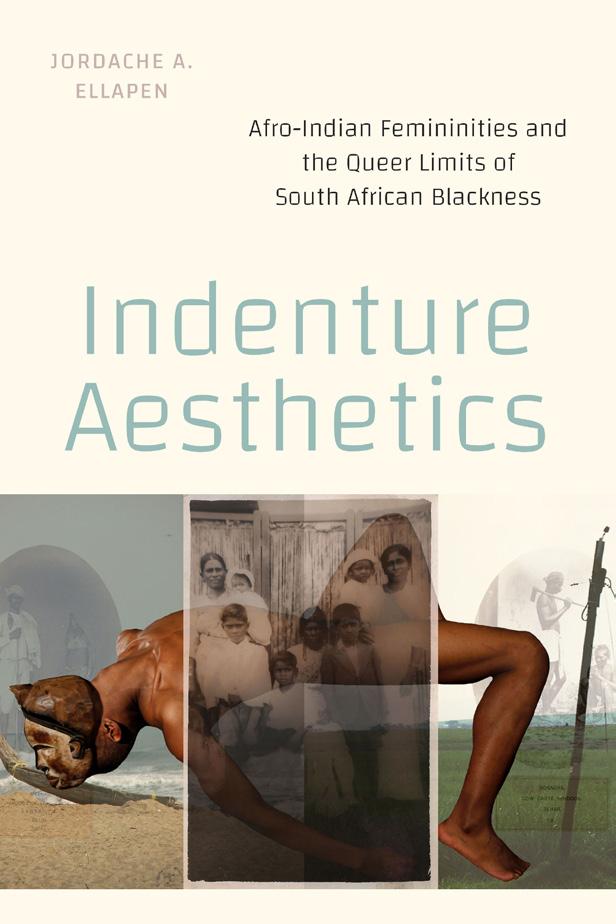
January 2025
288 pages
African and Black studies/Queer Theory/Visual culture Rights: World
April 2025 312

March 2025
96 pages
Poetry
Rights: World
Immigrants, Health, and the Built Environment in Brazil
JEFFREY LESSER
There is a saying in Brazil: “Mosquitos are democratic: they bite the rich and the poor alike.” Why then is bad health, from violence to respiratory disease and malaria to dengue, dispersed unevenly across difference social and national groups? In Living and Dying in São Paulo, Jeffrey Lesser focuses on the Bom Retiro neighborhood to explore such questions by examining the competing visions of wellbeing in Brazil among racialized immigrants and policymakers and health officials. He analyzes the fraught relationship between Bom Retiro residents the state and healthcare agencies that have overseen community sanitation efforts since the mid-nineteenth century, drawing out the connected systems of the built environment, public health laws and practices, and citizenship. Lesser employs the concept of “residues” to outline how continuing historical material, legislative, and social legacies structure contemporary daily life and health outcomes in the neighborhood. In so doing, Lesser creates a dialogue between the past and present, showing how the relationship between culture and disease is both layered and interconnected.
Jeffrey Lesser is Samuel Candler Dobbs Professor of History at Emory University. He is the author of A Discontented Diaspora: Japanese Brazilians and the Meanings of Ethnic Militancy, 1960–1980 and Negotiating National Identity: Immigrants, Minorities, and the Struggle for Ethnicity in Brazil, both published by Duke University Press.
In her debut poetry collection, What Had Happened Was, Therí Alyce Pickens investigates the complex structures of Black storytelling. Addressing topics ranging from Black life, popular culture, and history to individual encounters with emotion, love, and chronic disability, Pickens crafts and questions the stories we tell ourselves about who we are and who we want to be. Throughout, Pickens mines the formal structures and the play of Black English within the lives and afterlives of Harriet Tubman, Mary J. Blige, Li’l Kim, Breonna Taylor, and figments of our collective imagination. Her singular poetic voice effortlessly flows between what she knows and what she’s heard and between everyday Black conversation and her work in cultural criticism and disability studies. Travelling at the speed of thought, Pickens explores a praxis of storytelling governed by the places where truths and fables kiss.
Therí Alyce Pickens is Charles A. Dana Professor of English and Africana at Bates College and author of Black Madness :: Mad Blackness, also published by Duke University Press, and New Body Politics: Narrating Arab and Black Identity in the Contemporary United States
MAIA GIL'ADÍ
In Doom Patterns, Maia Gil’Adí takes up speculative fiction as a site for theorizing Latinx identity across national and ethnic borders and shows the vital role of historical trauma in its formation. Her analysis moves beyond reparative modes of reading to consider how literary representations of violence, destruction, and pain also elicit pleasurable affective and aesthetic experiences. Gil’Adí theorizes the paradox of pleasurable violence through the notion of doom patterns—narrative devices that include thematic repetition, nonlinear narration, character fragmentation, and unresolved plots. Doom patterns return the reader to instances of historical violence and destruction, revealing them as excessive and otherworldly processes that require the tropes of speculative fiction. Examining novels by established Latinx authors such as Junot Díaz and Cristina García as well as multiethnic writers such as Colson Whitehead and Sesshu Foster, Gil’Adí challenges definitions of what constitutes Latinx literature and notions of the speculative by dismantling generic boundaries and entrenched definitions of race, ethnicity, and nationhood. In so doing, she allows for a more capacious consideration of the speculative, realism, history, and the role of violence in literature.
Maia Gil’Adí is Fannie Gaston-Johansson Assistant Professor of Latinx Studies at Johns Hopkins University.
In the Anthropocene our actions are coming home to roost. Global warming, species extinctions, and environmental disasters are the dark side of our mastery of nature. In Acting with the World, Andrew Pickering identifies a different pattern of being and doing that can evade this dark side, a pattern which he calls acting with the world. In contrast to our usual practice of acting on the world, acting-with foregrounds nonhuman or more-than-human agency and aims to attune our practices to the propensities of nature. Pickering explores examples of acting-with from around the globe, including flood control on the Mississippi River, ecosystem restoration on the Colorado River, the Room for the River project and rewilding in the Netherlands, natural farming in Japan, Aboriginal fire techniques in Australia, and Amazonian shamanism. Pickering argues that acting-with intimately and gracefully plugs us into nature, undercuts the Anthropocene from below, and offers a constructive approach to addressing otherwise intractable wicked problems.
Andrew Pickering is Professor Emeritus of Sociology and Philosophy at Exeter University, author of The Mangle of Practice: Time, Agency, and Science and The Cybernetic Brain: Sketches of Another Future, and coeditor of The Mangle in Practice: Science, Society, and Becoming, also published by Duke University Press.
January 2025
280 pages
Latinx and Chicanx studies/Literary studies/ American studies
Rights: World
April 2025
168 pages Science and technology studies/Environmental studies
Rights: World
January 2025
208 pages
ATIYA HUSAIN
Reconceptualizing the relationship between race and Islam in the United States, No God but Man theorizes race as an epistemology using the FBI’s post-9/11 Most Wanted Terrorist list and its posters as its starting point. Atiya Husain traces the origins of the FBI wanted poster form to the work of nineteenth-century social scientist Adolph Quetelet, specifically his overvalued type of human called “average man.” Husain argues that this notion of the human continues to structure wanted posters, as well as much contemporary social scientific thinking about race. Focusing on the curious representations on the Most Wanted Terrorist list that range from Muslims who lack a race category on their posters to the 2013 addition of Black revolutionary Assata Shakur, Husain demonstrates the ongoing influence of the average man and its relevance even today, proposing a counterweight to the category by engaging Shakur’s turn to Islam in the 1970s in the legal context. In doing so, Husain shows the limitations of race as an analytical category all together.
Atiya Husain is Associate Professor of Africana Studies at Williams College.

March 2025
216 pages
Sociology/Anthropology/Latin American studies
Rights: World
Persistence at the Urban Margins of Buenos Aires
JAVIER AUYERO AND SOFÍA SERVIÁN
In Squatter Life, sociologist Javier Auyero and anthropologist Sofía Servián detail the diverse and often precarious strategies that Argentina’s urban poor rely on to survive. Blending three years of ethnographic fieldwork and anthropological theory with personal narratives of Servián’s experience growing up and living in a squatter settlement, the authors examine how Argentina’s squatter communities contend with violence and secure necessities like food, land, and housing despite inadequate state support and protection. Auyero and Servián recount the bricolage of tactics these individuals employ to make ends meet such as relying on highly exploitative jobs, patronage, and networks of reciprocal exchange that can involve illicit activities. Analyzing how these survival strategies intersect with class, gender, and political domination, the authors present a nuanced account of marginality in Argentinian squatter settlements while maintaining a deeply human portrait of survival and persistence.
Javier Auyero is Lozano Long Professor in Latin American Sociology at the University of Texas at Austin and Ikerbasque Research Professor at the University of the Basque Country UPV-EHU, Bilbao. He is the author of Patients of the State: The Politics of Waiting in Argentina, Contentious Lives: Two Argentine Women, Two Protests, and the Quest for Recognition, and Poor People’s Politics: Peronist Survival Networks and the Legacy of Evita, all also published by Duke University Press. Sofía Servián is a BA (Licenciatura) student of Anthropology at the University of Buenos Aires.
Trans people have always lived in the cracks of institutions—and the university is no exception. In How We Make Each Other, Perry Zurn tells the stories of how trans people make and live their lives at the edges of the university, in ways that sometimes lead to policy change, but always leave participants and institutions different than they were before. Using the Five Colleges in Massachusetts as a case study, Zurn notes that Amherst College, Hampshire College, Mount Holyoke College, Smith College, and the University of Massachusetts, Amherst, have been at the forefront of developing trans-inclusive policies in higher education, often in response to student organizing. Zurn focuses on the stories of trans students, staff, faculty, and community members within and alongside these institutions, exploring how they have built themselves and each other. Drawing on official archives as well as over 100 interviews, Zurn shows how trans people in the Five Colleges have made history, forged resistance habits, and cultivated hope.
Perry Zurn is Visiting Associate Professor of Feminist, Gender, and Sexuality Studies at Cornell University, Provost Associate Professor of Philosophy at American University, author of Curiosity and Power: The Politics of Inquiry, coauthor of Curious Minds: The Power of Connection, and coeditor of Trans Philosophy
Contemporary Arts and Afterlives of Colonial-Era Mass Housing in the Maghreb KATARZYNA PIEPRZAK
Today, most colonial-era modernist mass housing is seen as fundamentally broken: crumbling concrete spaces of social alienation and containment that fractured societies both then and now. In Poetics of Repair, Katarzyna Pieprzak examines how contemporary visual, literary, and performance art of the Maghreb has the potential to change the terms, histories, and imagined futures of mass housing in North Africa and France. Pieprzak dives deeply into contemporary art engagements with three mass housing sites that epitomize the French colonial geography of modernist architecture in the Maghreb. She identifies in this art what she names a transformative “poetics of repair”: a practice that enjoins, puts in relation, or simply brings closer together broken materials, separated people, and severed timelines. Reading art and its engagements with mass housing, Pieprzak argues, has the potential to unmoor established knowledge and rehearse the tensions and productive ambiguities inherent to practices of constitution and revision. She demonstrates that such a reading practice is a step toward a reparative epistemology for mass housing that turns sites of wreckage and alienation into sites of possible solidarities and new formulations of history and experience.
Katarzyna Pieprzak is Massachusetts Professor of Francophone Literature, French Language, and Comparative Literature at Williams College. She is the author of Imagined Museums: Art and Modernity in Postcolonial Morocco

January 2025
336 pages
Trans studies/Higher education Rights:World
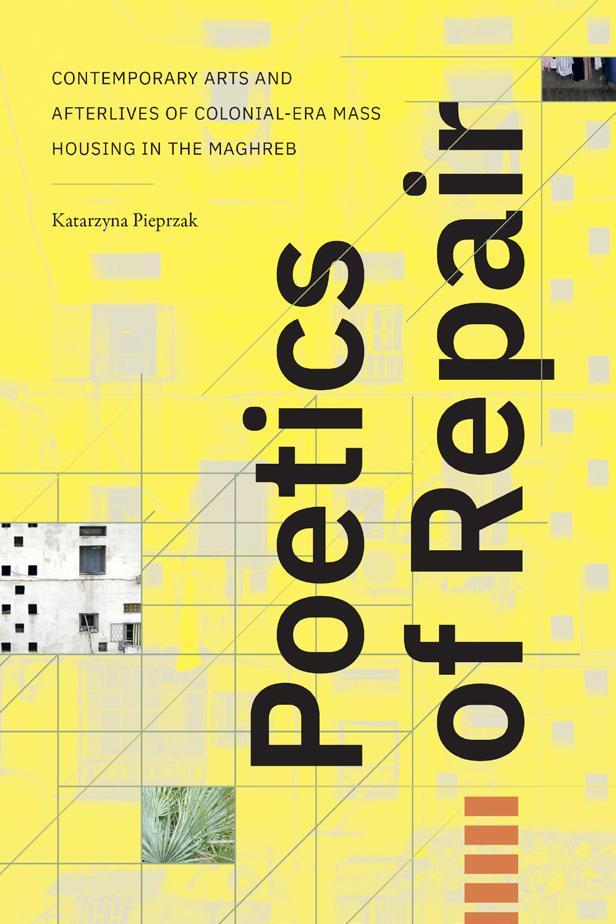
January 2025
232 pages
Visual studies/Postcolonial studies/Middle East & North Africa Rights: World
May 2025
456 pages
Art/Curatorial and Museum studies/Africa Rights: World
Okwui Enwezor is widely regarded as a leader among the brilliant curators who emerged in the 1990s to set agendas for understanding the global expansiveness of contemporary art. Among his pathfinding exhibitions were the second Johannesburg Biennial (1997), the paradigm-shifting Documenta 11 (2002), Archive Fever (2008), and Postwar (2016). In addition to his groundbreaking curatorial work, Enwezor was also a prolific critic, essayist, and theorist. Selected Writings—a landmark two volume set—brings together Enwezor’s most influential and foundational works. Spanning a quarter-century, these selections reflect the depth and breadth of Enwezor’s writing and its role in his tireless efforts to decolonize the art world. Volume 1, Toward a New African Art Discourse, includes fifteen essays written between 1994 and 2006. Drawn from exhibition catalogs, art journals, interviews with artists, art reviews, curatorial statements, historical studies, and book chapters, these texts show him striving to fulfil the first main ambition that drove his career: to found and sustain what he called a “New African Art Discourse.” Demonstrating that his writing helped fulfill this goal, this collection reaffirms Enwezor’s status as a transformational figure in the global contemporary art world.
Okwui Enwezor (1963–2019) was an internationally recognized and pathbreaking art curator, the former director of Haus der Kunst, founder of Nka: Journal of Contemporary Art, and the coauthor of numerous books and exhibition catalogs. Terry Smith is Andrew W. Mellon Emeritus Professor of Contemporary Art History and Theory at the University of Pittsburgh and Professor at Large, The Africa Institute, Global Studies University, Sharjah.
Curating the Postcolonial Condition OKWUI ENWEZOR
Okwui Enwezor is widely regarded as a leader among the brilliant curators who emerged in the 1990s to set agendas for understanding the global expansiveness of contemporary art. Among his pathfinding exhibitions were the second Johannesburg Biennial (1997), the paradigm-shifting Documenta 11 (2002), Archive Fever (2008), and Postwar (2016). In addition to his groundbreaking curatorial work, Enwezor was also a prolific critic, essayist, and theorist. Selected Writings—a landmark two volume set—brings together Enwezor’s most influential and foundational works. Spanning a quarter-century, these selections reflect the depth and breadth of Enwezor’s writing and its role in his tireless efforts to decolonize the art world. Volume 2, Curating the Postcolonial Condition, includes seventeen essays written between 2006 and 2020. Drawn from exhibition catalogs, art journals, interviews with artists, art reviews, curatorial statements, historical studies, and book chapters, these texts show him striving to fulfil the second main ambition that drove his career: enabling a critical, diasporic imagining of postcoloniality that would become pervasive within global art discourse. Demonstrating that his writing helped fulfill this goal, this collection reaffirms Enwezor’s status as a transformational figure in the global contemporary art world.
Okwui Enwezor (1963–2019) was an internationally recognized and pathbreaking art curator, the former director of Haus der Kunst, founder of Nka: Journal of Contemporary Art, and the coauthor of numerous books and exhibition catalogs. Terry Smith is Andrew W. Mellon Emeritus Professor of Contemporary Art History and Theory at the University of Pittsburgh and Professor at Large, The Africa Institute, Global Studies University, Sharjah.
ZACH BLAS, MELODY JUE, AND JENNIFER RHEE, EDITORS WITH AN AFTERWORD BY DONNA J. HARAWAY
Informatics of Domination gathers thirty-two short pieces organized around Donna J. Haraway’s informatics of domination chart, first published in her canonical 1985 essay “A Cyborg Manifesto.” Haraway’s framework diagrams how control and power are shaped by white capitalist patriarchy and manifested through information systems, networks, and computers. The multidisciplinary contributors take up and build upon the chart’s entries in a variety of expressive forms, including essays, fiction, poetry, images, and conversations, to examine what an informatics of domination looks like in the twenty-first century. They engage with pressing concerns and topics such as the COVID-19 pandemic, bushfires, police shootings, gaming, war, composting, refrigeration, and robotics, among others. Together, the writings take up the inviting and unfinished structure of the chart in order to theorize modes of domination through informatic systems of power. By refracting the chart through itself, the collection opens up the idea of an informatics of domination to new perspectives while considering how the chart itself offers novel structures for thought. This volume includes an afterword by Haraway and an epilogue by Patricia Reed.
Zach Blas is Assistant Professor of Visual Studies at the University of Toronto. Melody Jue is Associate Professor of English at the University of California, Santa Barbara. Jennifer Rhee is Associate Professor of English at Virginia Commonwealth University.
May 512 pages
Art/Curatorial and Museum studies/Africa Rights: World
May 2025
344 pages
Science and technology studies/Art and visual culture/Media studies
Rights: World